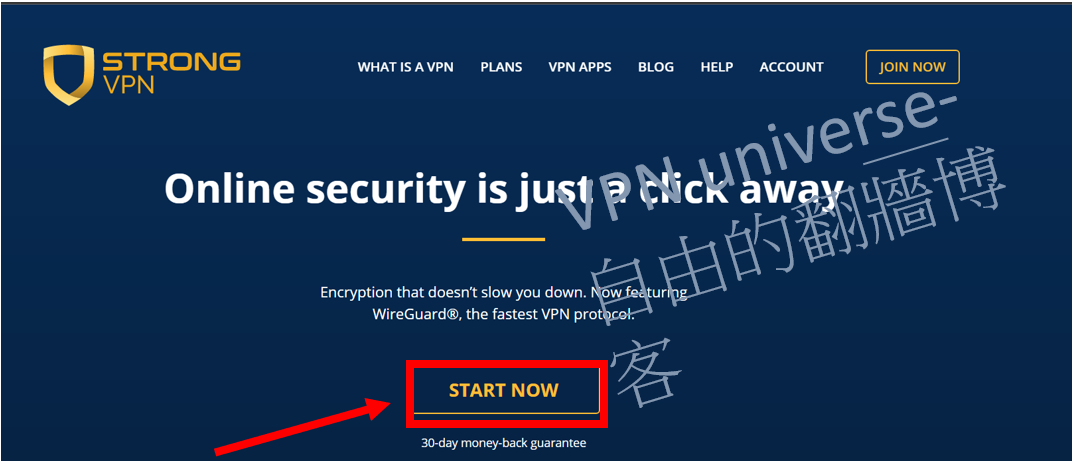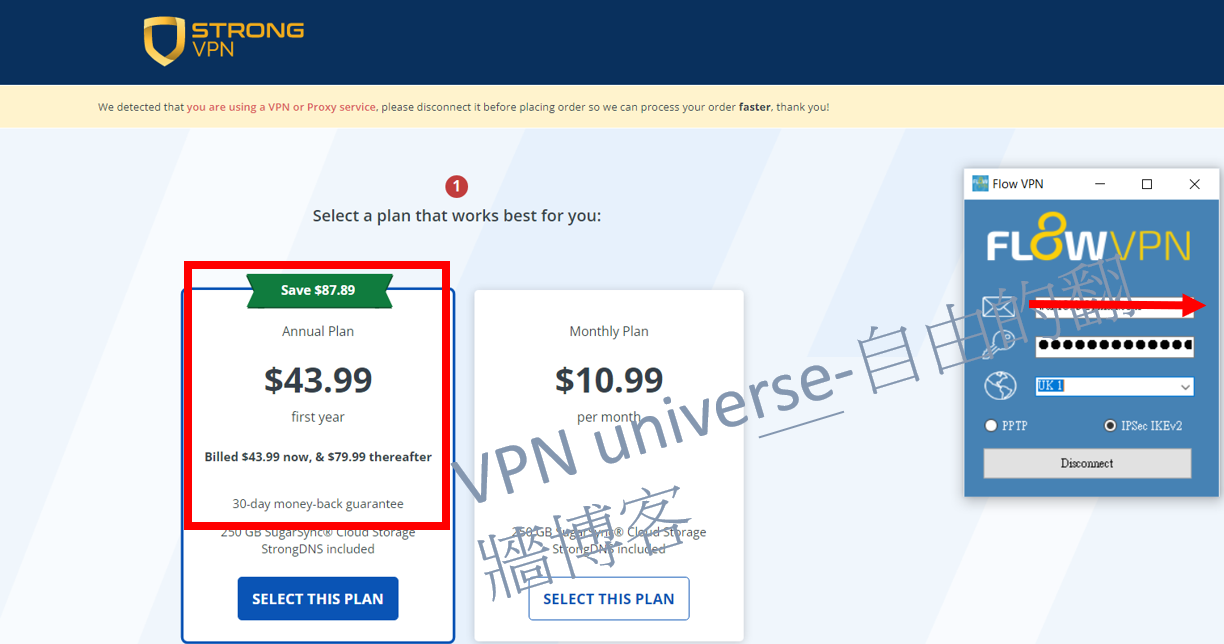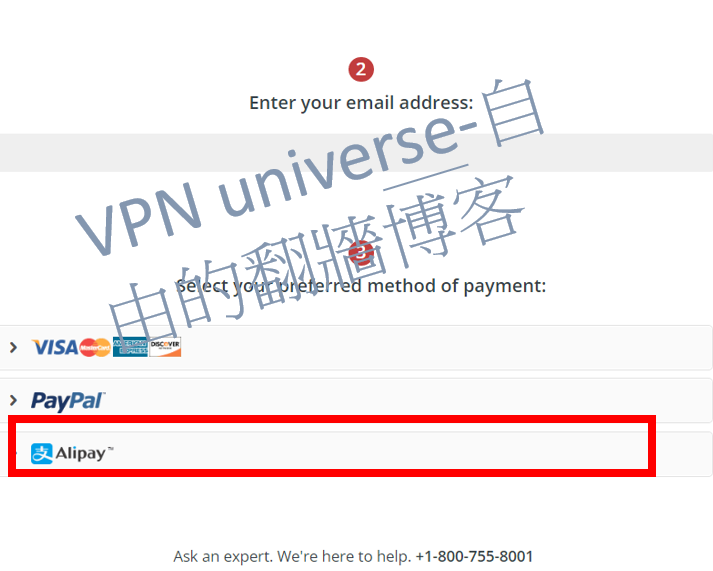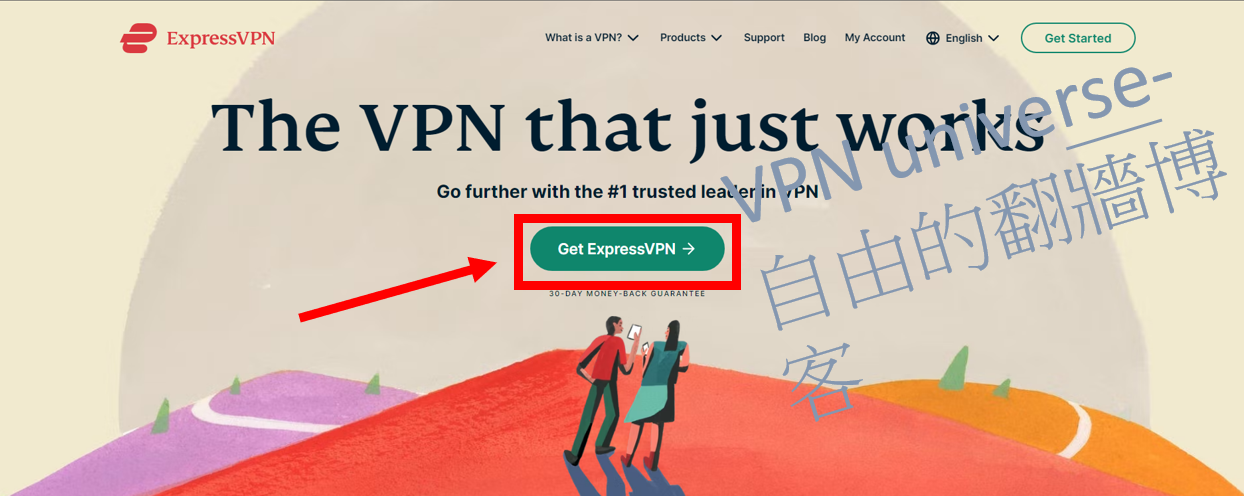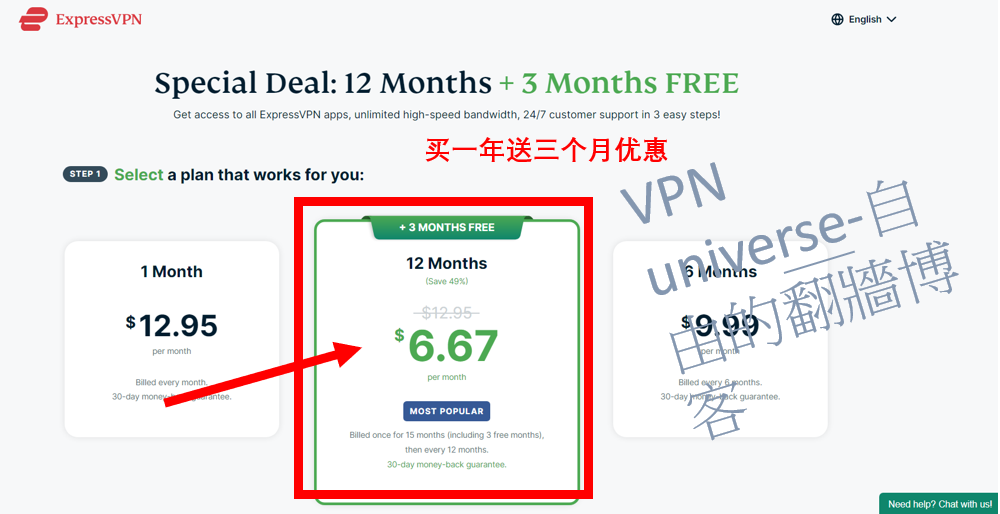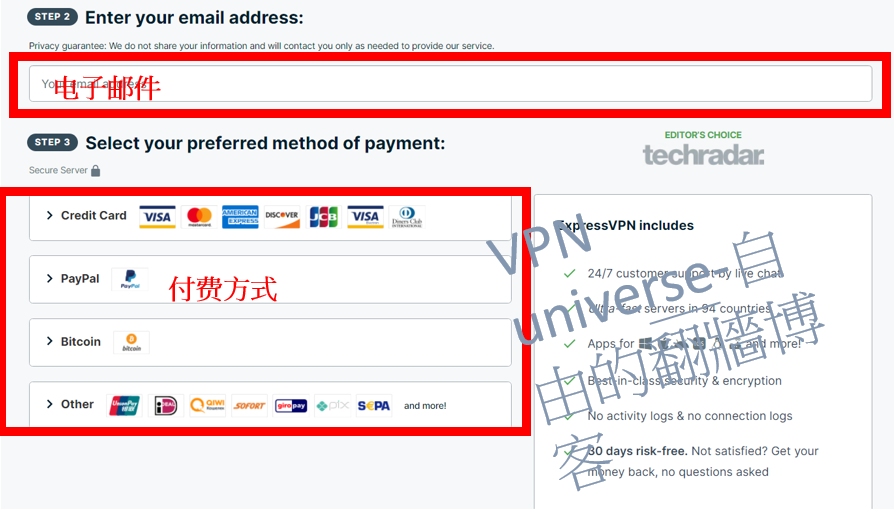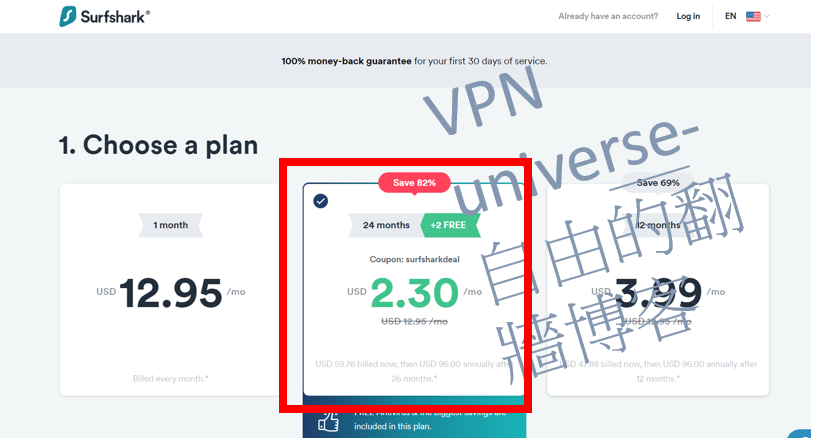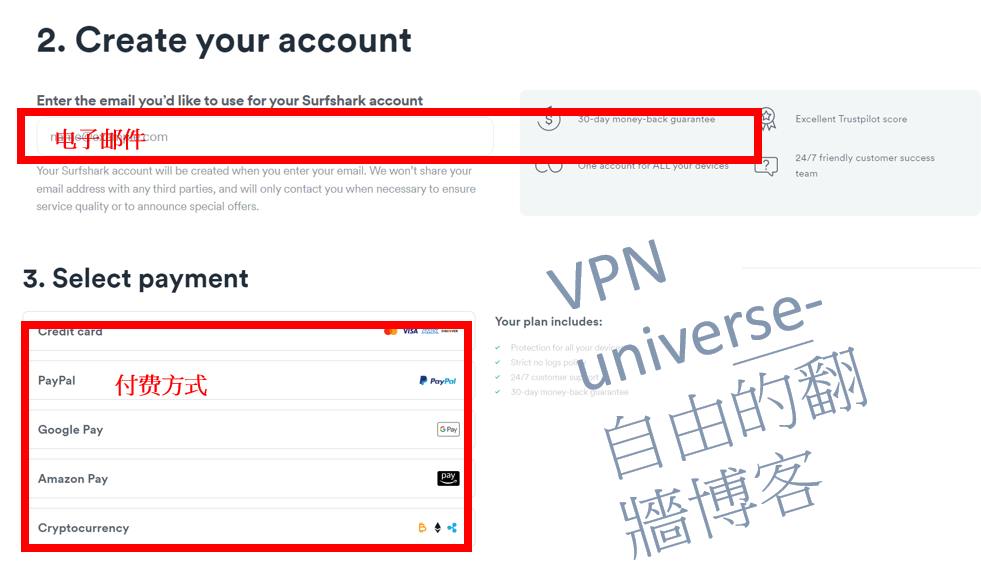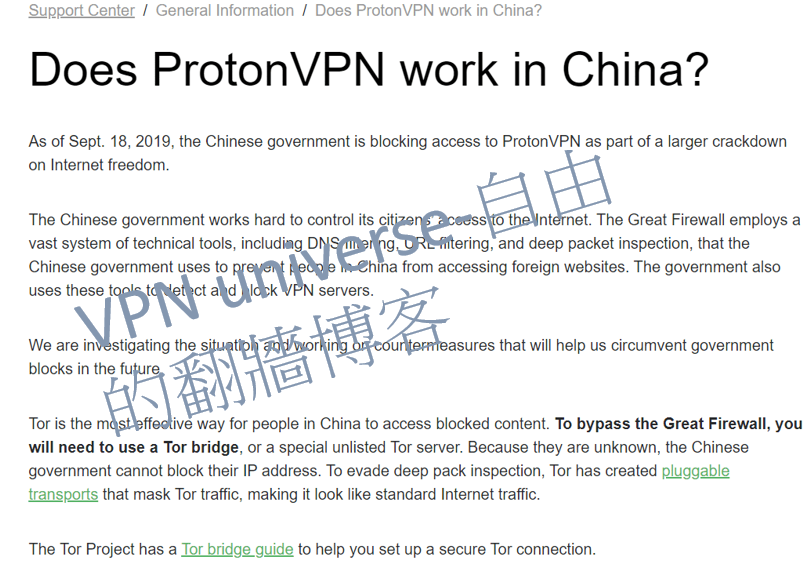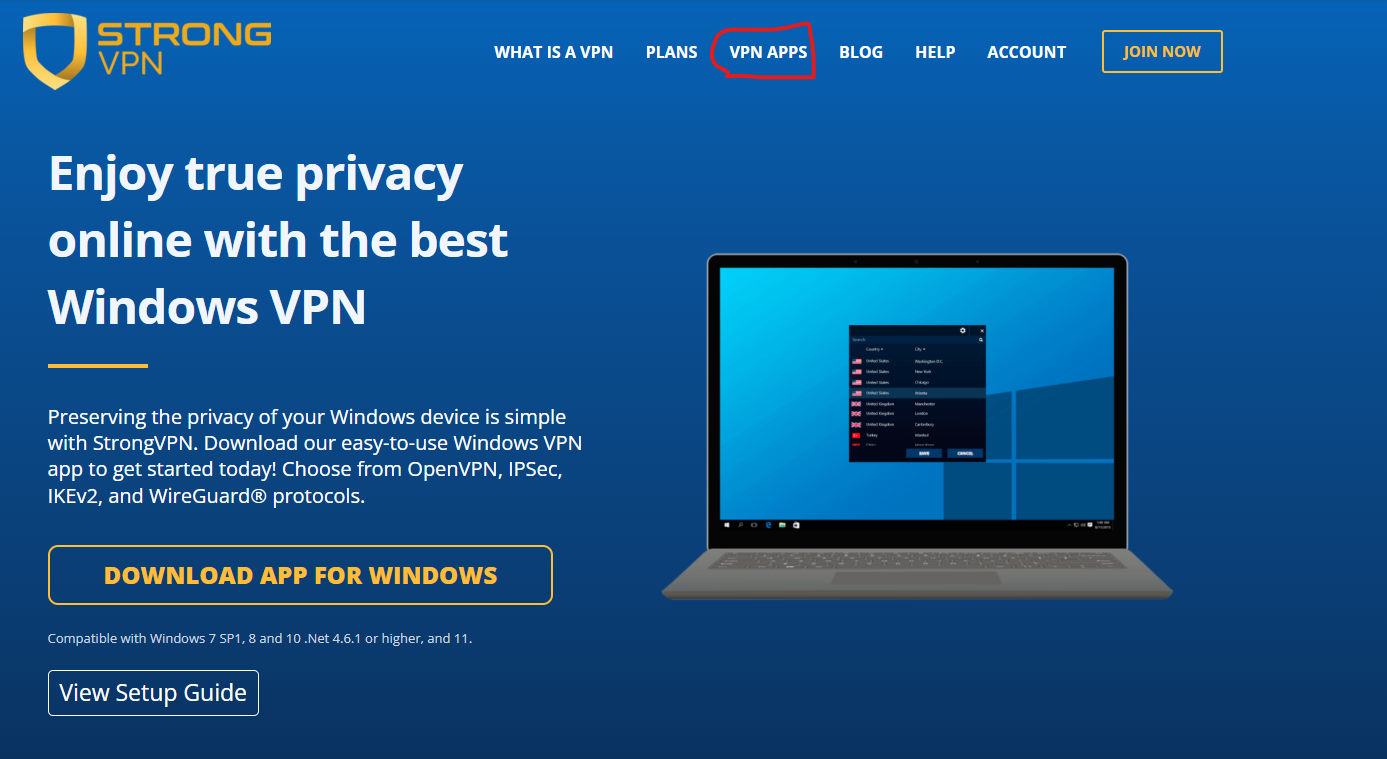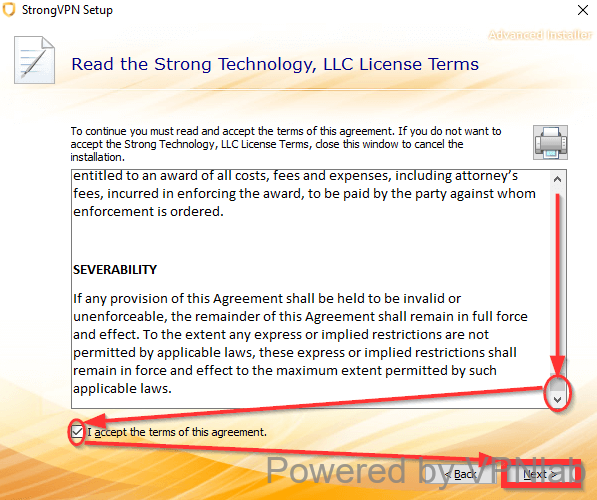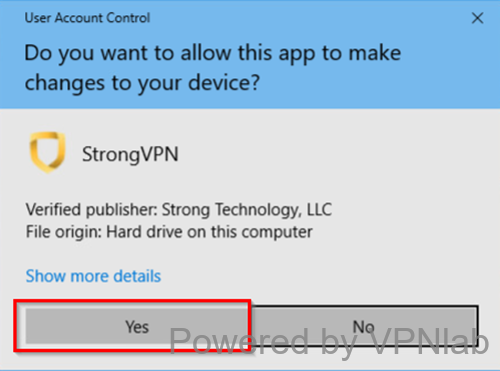Best VPNs for India - Comprehensive Recommendations (Updated: April 03, 2025)
If you enjoy this guide, consider starring this repository and sharing it with others to help spread awareness about internet privacy and freedom. Let’s work together for a more secure and open web!
Quick Overview: Pricing and Performance of the Best VPNs for India
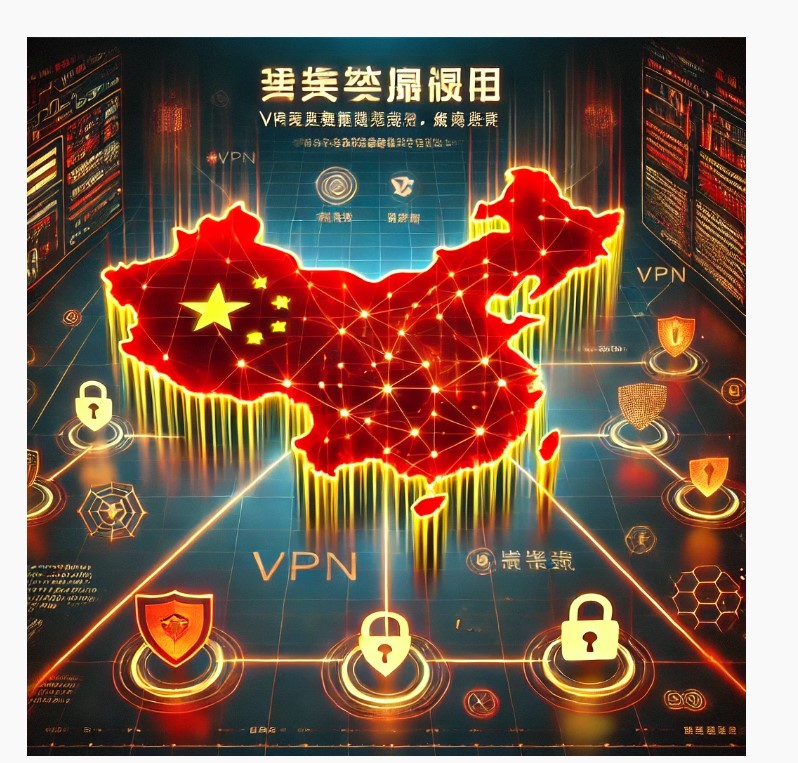
Here’s a summary of the top VPN options for Indian users, including the best subscription plans, pricing, and standout features:
| Recommended VPN | Best Plan (Duration) | Monthly Price (USD) | Total Cost | Key Features | Local Payment Options (UPI, Paytm) |
|---|---|---|---|---|---|
| StrongVPN | 1-Year Plan | 3.97 | 47 | Best Value for Money | Supported |
| FlowVPN (2-Day Free Trial) | 1-Year Plan | $4.17 | 50 | Free 2-Day Trial | Supported |
| ExpressVPN (12 Months + 3 Free) | 1-Year Plan (15 Months Total) | 5.33 | 80 | Top Performance and Stability | Not Supported |
| Surfshark | 2-Year Plan | $2.30 | 55 | Unlimited Devices | Not Supported |
Pricing Comparison and Best Purchase Strategies for India VPN Users
Here’s how you can get the most value out of these VPN services:
-
For Budget-Friendly Options:
If you want an affordable plan with reliable performance, go for StrongVPN, which costs $54/year. To continue saving, consider using a new email each year to access promotional offers. -
For Multi-Device Use:
For families or individuals with multiple devices, Surfshark is an excellent choice. Their 2-year plan costs only $55 and supports unlimited devices. -
For Speed and Stability:
If speed and connectivity are your top priorities, ExpressVPN is highly recommended. With a 12-month subscription that includes 3 extra months free, it offers unparalleled stability and performance, costing around $80. -
For Light Browsing:
For casual users or academic research purposes, FlowVPN is an economical option, especially with its 2-day free trial.
Why Use VPNs in India?
Although India doesn’t enforce heavy internet censorship like the Great Firewall of China, there are several compelling reasons for Indian users to consider using a VPN:
-
Data Privacy and Security:
VPNs encrypt your internet traffic, protecting you from cyberattacks, unauthorized surveillance, and potential data breaches. -
Access Geo-Restricted Content:
Unlock streaming services, websites, and apps that are regionally restricted, such as international OTT platforms or exclusive content. -
Internet Freedom During Shutdowns:
VPNs can bypass regional internet shutdowns, ensuring uninterrupted access to the web in times of need. -
Secure Public Wi-Fi:
Protect yourself from hackers and phishing attempts while using public Wi-Fi networks in cafes, airports, or malls.
VPN Speed Comparison: Which is the Fastest for India?
Based on extensive research and multi-location testing, we’ve compiled a detailed comparison of VPN speed performance to help users make informed decisions. Among the tested VPNs, ExpressVPN consistently offers the highest stability, followed by StrongVPN, with Surfshark and FlowVPN performing comparably. The choice ultimately depends on your priorities for speed versus cost.
Below are the average speeds for these four VPNs in key regions, including India and nearby locations such as Singapore, Japan, and South Korea. We tested multiple times to account for variability and plotted error bars to indicate the standard deviation.
Key Insight: Why Speed Matters
VPN users highly value connection speed. If a VPN significantly slows your internet, it may discourage regular use, leaving your devices unprotected. With the rise of streaming as one of the most common VPN applications, the ability to load HD and 4K content without buffering is now more critical than ever.
During our testing, we evaluated each VPN service on a 1Gbps connection, using tools like Ookla SpeedTest, nPerf, Netflix’s Fast, and CLI-based tools. Each tool’s results were averaged (using the median value) to ensure accuracy. Tests were repeated during both morning and evening hours to capture a representative performance range.
VPN Speed Test Results
| VPN Service | WireGuard/Proprietary Protocol | OpenVPN |
|---|---|---|
| ExpressVPN | 600 Mbps | 400 Mbps |
| FlowVPN | 650 Mbps | 380 Mbps |
| StrongVPN | 500 Mbps | 350 Mbps |
| Surfshark | 800 Mbps | 300 Mbps |
How We Conduct Our Tests
- Daily Updates: Speeds are tested and updated daily.
- Aggregated Data: We calculate average speeds for the past 7, 14, 30, and 90 days.
- Rigorous Testing: Each VPN undergoes 10–20 connection tests daily across multiple servers and protocols.
Below is the aggregated speed performance chart, showing the average download and upload speeds with error bars representing standard deviation:

Best Purchase Strategies for Indian Users
-
For Budget-Conscious Users:
If speed isn’t your top priority but you want a reliable VPN, consider StrongVPN. At $43 per year (approximately $4/month), it offers solid performance at a reasonable price. Use a new email annually to access discounts. -
For High-Speed Enthusiasts:
For users who prioritize speed, especially for streaming or gaming, ExpressVPN is an excellent choice. Their 12-month plan includes 3 free months, costing around $6/month with unmatched performance and stability.
The latest update: January 15, 2025
summary
1. If you enjoy this guide, consider starring this repository and sharing it with others to help spread awareness about internet privacy and freedom. Let’s work together for a more secure and open web!
2. VPN Speed Comparison: Which is the Fastest for India?
3. Understanding VPNs for Internet Freedom in India
4. Step-by-Step Guide: Purchasing StrongVPN with Alipay or PayPal
5. StrongVPN Setup Guide for Mobile Devices (Android / iOS)
6. How to Purchase ExpressVPN with an Exclusive Online Discount
7. Setting Up ExpressVPN Across Devices (PC, Smartphone, Tablet)
8. Step-by-Step Guide: Purchasing Surfshark VPN
9. Step-by-Step Guide: Trying FlowVPN for Free (2-Day Trial)
10. VPN Challenges in India During Sensitive Periods
11. India VPN Blacklist: Services to Avoid
12. India VPN Recommendations and Essential Features
13. VPN Privacy Features
14. Analyzing VPN Servers and Optimization Tips
15. Troubleshooting VPN Connection Issues
16. Ensuring Your VPN Remains Active and Reliable
17. Physical vs. Virtual Servers
18. Streaming and P2P Servers
19. Common Issues When Using VPNs in India
20. StrongVPN Installation Guide
21. ExpressVPN Installation Guide
22. Surfshark Installation Guide
23. FlowVPN Installation Guide
24. What Can You Do with a VPN in India?
25. Why Not Set Up Your Own VPN?
26. Overview of Common Proxy and VPN Technologies
27. Detailed VPN Speed Test Report
28. Guide to Watching Streaming Platforms with a VPN
29. Linux VPN Installation Guide
30. Introduction to Basic Cryptography and Principles of Encryption
31. VPN Settings and Recommendations for Specific Applications, e.g., BitTorrent
32. Future Trends and Predictions for VPNs
33. VPN Settings and Recommendations for Specific Applications, e.g., BitTorrent
34. Future Trends and Predictions for VPNs
Understanding VPNs for Internet Freedom in India
What is a VPN?
A VPN, or Virtual Private Network, is a tool that helps users protect their online privacy, bypass geo-restrictions, and access the full potential of the internet securely. While countries like China have strict internet censorship policies enforced through their “Great Firewall,” India faces a different set of challenges when it comes to digital freedom.
Internet Challenges in India: Why Use a VPN?
India does not have a centralized firewall like China, but there are significant reasons why VPNs are becoming increasingly essential for Indian users:
1. Protecting Your Privacy
India has seen growing concerns over online privacy due to government surveillance and data retention policies. VPNs can encrypt your online activities, ensuring that your browsing history and personal data are safe from prying eyes, including your ISP or malicious actors.
2. Accessing Geo-Restricted Content
Streaming services like Netflix, Amazon Prime Video, and Disney+ often restrict certain content to specific regions. VPNs allow Indian users to access a broader range of global entertainment by connecting to servers in other countries, bypassing these regional restrictions.
3. Avoiding Bandwidth Throttling
Some ISPs in India throttle bandwidth for certain applications, such as streaming or gaming. A VPN masks your online activity, preventing ISPs from selectively slowing down your connection.
4. Maintaining Internet Access During Shutdowns
India has seen an increasing number of internet shutdowns in specific regions due to political unrest or security concerns. VPNs can help users maintain access to the internet during such disruptions, providing a vital lifeline for communication and work.
VPNs and Internet Freedom: A Broader Perspective
While the need for VPNs in India differs from countries with heavy censorship, the underlying goal remains the same—ensuring digital freedom and security. By routing your traffic through encrypted servers, a VPN can help you bypass government-imposed restrictions, access blocked websites, and protect your personal information.
Why Are VPNs So Popular in India?
The demand for VPNs in India has surged due to a combination of factors:
- Increased Work-from-Home Requirements: With many Indians working remotely, accessing secure connections for tools like Google Workspace, Microsoft Teams, and Zoom has become critical.
- Growing Concerns About Online Safety: Cyberattacks and data breaches have become more frequent, making VPNs a necessity for protecting sensitive information.
- Streaming and Gaming: The need for high-speed, unrestricted access to global streaming services and gaming platforms has driven the adoption of VPNs among younger users.
How Does a VPN Work?
A VPN works by creating a secure, encrypted tunnel between your device and a remote server. This process masks your IP address, making it appear as though you are browsing from the server’s location. For Indian users, this means:
- Enhanced Privacy: ISPs and government entities cannot monitor your online activities.
- Seamless Access to Global Content: Enjoy streaming, gaming, and browsing without worrying about restrictions or throttling.
VPN Terminology in India
While terms like “bypassing censorship” or “breaking restrictions” may not be as commonly used in India as in countries with strict internet controls, Indian users often refer to VPNs for:
- Streaming Freedom: Unlocking content on platforms like Netflix, Hulu, or Disney+.
- Secure Browsing: Ensuring privacy on public Wi-Fi.
- Uninterrupted Internet: Maintaining access during regional internet disruptions.
Benefits of Using a VPN: Why Should You Hide Your IP Address?
Your IP address is like a digital street address. It uniquely identifies your location and device on the internet. However, this identification can sometimes work against you—third parties can use it to monitor your activities or track your whereabouts.
By replacing your IP address with that of a VPN server, VPN providers encrypt your connection and hide your true online identity within seconds. This creates a private and secure network where your internet traffic is fully shielded from third parties. Whether you’re concerned about online privacy, security, or anonymity, a VPN provides the protection you need in today’s digital landscape.
Public Wi-Fi Risks: How a VPN Protects You
Public Wi-Fi networks, such as those in cafes, airports, and hotels, are convenient but inherently risky. These busy hotspots expose your data to hackers and malicious actors. Without a VPN, using public Wi-Fi puts you at risk of data breaches, including the compromise of:
- Banking and financial information
- Work-related communications
- Phone numbers, emails, and personal messages
When connected to a VPN, your internet activity is encrypted and routed through a secure network, ensuring that even on unsecured Wi-Fi networks, your data remains safe. Whether you’re streaming, shopping, or working remotely, a VPN allows you to use public Wi-Fi with peace of mind.
Key VPN Protocols to Know
Understanding the following VPN-related terms will help you make an informed decision when choosing a VPN service. These protocols are the backbone of how VPNs function, offering varying levels of security, speed, and reliability:
- WireGuard: A modern VPN protocol known for its speed and efficiency. Ideal for streaming and gaming.
- OpenVPN: A versatile and widely used protocol offering strong encryption. Great for general security needs.
- IKEv2/IPSec: Known for its stability on mobile devices, this protocol is perfect for users who switch between Wi-Fi and mobile data.
Features to Look for in the Best VPNs for India
Based on extensive testing and user feedback, here are the essential features that make a VPN truly stand out for Indian users:
- High Security: Ensure the VPN provider is not based in jurisdictions with poor privacy laws. Non-Indian providers are often preferred for better data privacy.
- Stable Connection: A reliable VPN should maintain consistent performance across various networks.
- Fast Speeds: A high-speed connection is crucial for activities like streaming and gaming.
- Multiple Server Locations: Access to servers in a variety of countries ensures better performance and access to geo-restricted content.
- Ease of Use: A user-friendly interface with one-click connection simplifies the process.
- Strong Encryption: Advanced encryption protocols keep your data secure.
- Multi-Device Support: Look for VPNs that allow simultaneous connections on multiple devices.
- Cross-Platform Compatibility: Ensure the VPN works seamlessly across Windows, Linux, Android, iOS, and other operating systems.
- 24/7 Customer Support: Responsive support is essential, preferably in English or regional languages.
- Money-Back Guarantee: A 30-day refund policy allows you to test the service risk-free.
- Flexible Payment Options: Support for local payment methods like UPI, Paytm, or international cards.
- Affordable Pricing: Ensure the VPN offers good value for money, balancing cost with features.
Selecting the Best VPNs for India: Practical Recommendations
After testing hundreds of VPNs, the following factors were identified as the most critical for Indian users:
- Privacy Protection: Choose a VPN provider with a strict no-logs policy and robust encryption.
- Unrestricted Streaming: Look for services that excel at bypassing geo-restrictions on platforms like Netflix, Hulu, and Amazon Prime Video.
- Public Wi-Fi Safety: Ensure your VPN has features to protect against risks on unsecured networks.
- Global Server Access: A diverse server network is key for accessing region-specific content and ensuring a lag-free connection.
1. StrongVPN – Best Value for Money
StrongVPN Overview
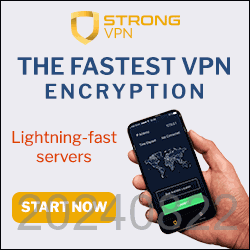
StrongVPN is an emerging VPN provider that offers incredible value for users looking for robust security and reliable performance. Compared to the more expensive ExpressVPN, StrongVPN is a budget-friendly option with plans starting at just $3.50/month (12-month plan for $43.99). Additionally, StrongVPN supports local payment methods like Alipay, which ExpressVPN does not.
If your primary goal is to stream platforms like YouTube, Netflix, or Amazon Prime Video, StrongVPN is an excellent choice. The service is optimized for streaming and claims compatibility with popular services like Netflix, Hulu, Disney+, HBO, and Sky Go.
Features of StrongVPN
- Platform Compatibility: Apps available for Windows, Mac, iOS, Android, and Amazon Fire TV, with setup guides for routers, Kodi, and more.
- Wide Server Network: Over 950 servers in 46 cities across 35+ countries.
- High Security: Supports protocols like L2TP, SSTP, OpenVPN, IKEv2, and the modern WireGuard for superior encryption and speed.
- 12 Simultaneous Connections: Use StrongVPN on up to 12 devices at the same time.
- Streaming Capability: Unblocks Netflix, Amazon Prime Video, Disney+, and more.
- 250GB Cloud Storage: Includes SugarSync storage with annual plans.
- No Logging Policy: StrongVPN guarantees zero-logging to protect your privacy.
- 24/7 Support: Get help via live chat or email anytime.
- Money-Back Guarantee: Full refund available within 30 days of purchase.
Why Choose StrongVPN?
- Value for Money: At $3.50/month (12-month plan), StrongVPN is one of the most affordable premium VPNs.
- Stable Connections: Offers reliable speeds and low latency, ideal for streaming and browsing.
- Streaming Optimization: Unlocks region-restricted content on platforms like Netflix, Hulu, and Disney+.
- Privacy and Security: Zero-logging policy ensures that your data is never tracked or shared.
- Easy Payment Options: Accepts international credit cards, PayPal, and local payment methods like Alipay.
How Fast is StrongVPN?
Connection speed is a critical factor for VPN users, especially for streaming and gaming. StrongVPN performed well in our speed tests across multiple protocols and servers:
- WireGuard Protocol:
- United States: 270–300 Mbps
- United Kingdom: 450 Mbps
- OpenVPN Protocol:
- United States: 230–240 Mbps
- IKEv2 Protocol:
- United States: 260–280 Mbps
While not the fastest VPN (services like NordVPN can exceed 800 Mbps), StrongVPN provides consistent performance suitable for most users.
Comparison Table: Key Specifications of StrongVPN
| Feature/Specification | Details |
|---|---|
| Client Platforms | Windows, Mac, Linux, Android, iOS, routers |
| Supported Protocols | OpenVPN, L2TP/IPsec, SSTP, WireGuard |
| Server Count | 950+ |
| Countries Covered | 35+ |
| Registered Location | United States |
| Payment Methods | Credit Card, PayPal, Alipay |
| Real-Name Registration | Not Required |
| Encryption Protocols | WireGuard, OpenVPN, IKEv2, L2TP, SSTP |
| Bandwidth Usage | Unlimited |
| Simultaneous Connections | 12 |
| Customer Support | Email, Live Chat, Phone |
| Privacy Policy | No Logs |
Why StrongVPN is Perfect for Indian Users
- Access to Global Content: Stream region-locked shows and movies on services like Netflix and Hulu.
- Secure Public Wi-Fi Use: Protect yourself while using public hotspots at cafes, airports, or hotels.
- Affordable Pricing: At just $3.50/month, it provides premium features at a fraction of the cost of competitors.
- Local Payment Options: Makes it easier for Indian users to subscribe without hassle.
- 12 Device Connections: Perfect for families or users with multiple devices.
2. ExpressVPN (12-Month Plan + 3 Free Months)
ExpressVPN Overview
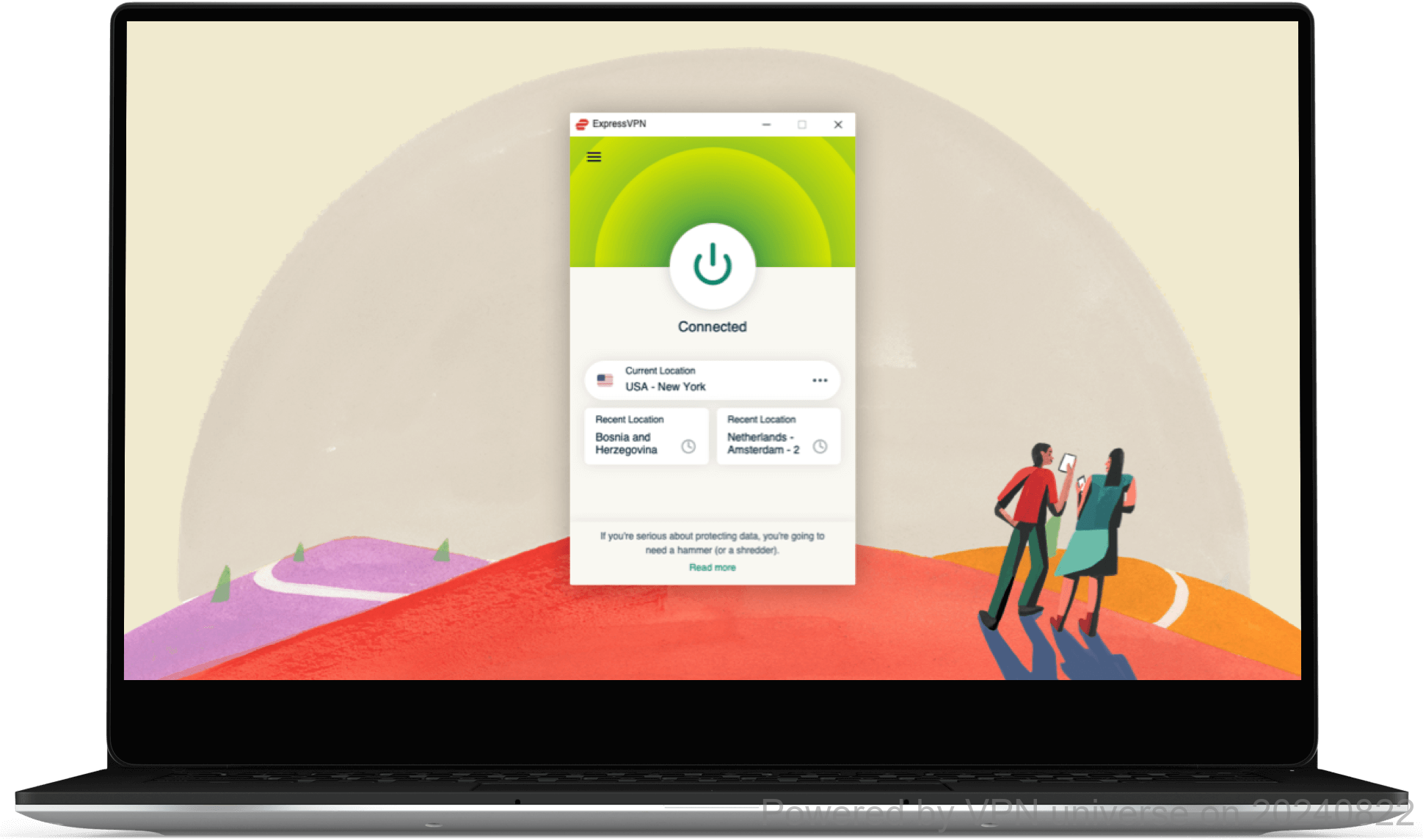
ExpressVPN is one of the most premium VPNs on the market, consistently recognized for its top-tier performance and industry-leading privacy features. While it is slightly more expensive than other options, its unmatched speed, reliability, and advanced features justify the price for users who prioritize a seamless and secure online experience.
Key Features of ExpressVPN
- Massive Server Network: Over 3,000 servers in 160 locations across 94 countries, ensuring reliable connections and access to global content. Asia-specific servers include popular locations like India, Singapore, and Hong Kong.
- Wide Platform Compatibility: Apps for Windows, Mac, Android, iOS, Linux, and detailed manual setup guides for routers, smart TVs (Apple TV, Fire TV), gaming consoles (PlayStation, Xbox), and more.
- High-Grade Encryption: Industry-standard AES-256 encryption, combined with Diffie-Hellman key exchange and HMAC authentication, ensures your data remains secure from even the most sophisticated cyber threats.
- Private DNS: Runs private, zero-knowledge DNS on all servers to prevent DNS leaks and enhance privacy.
- Automatic Kill Switch: Protects your privacy by instantly blocking internet traffic if the VPN connection drops.
- Split Tunneling: Lets you route specific apps or traffic through the VPN while keeping others on your regular connection.
- 24/7 Customer Support: Live chat, email, and a comprehensive knowledge base are available around the clock.
- 30-Day Money-Back Guarantee: Test the service risk-free and get a refund if it doesn’t meet your expectations.
ExpressVPN Performance: Speed and Stability
ExpressVPN is renowned for its exceptional speed and stability, making it ideal for streaming, gaming, and downloading. Here’s how it performed in our speed tests:
- Lightway Protocol:
- Consistently delivers speeds of 500–700 Mbps, ensuring lag-free streaming in HD and 4K.
- OpenVPN Protocol:
- Achieved speeds of 250–300 Mbps on average.
- Global Performance:
- Stable connections with minimal latency across key regions like India, the US, and the UK.
ExpressVPN is an excellent choice for bypassing ISP throttling and accessing geo-restricted content. Whether you’re streaming Netflix, Amazon Prime Video, or Disney+, the service ensures smooth, buffer-free playback.
Pricing and Exclusive Offer
ExpressVPN’s standard pricing might be higher than some competitors, but its exclusive offer provides excellent value:
- 12-Month Plan + 3 Free Months: Get 15 months of service for just $6.67/month (total cost: $99.95). This offer makes ExpressVPN a top-tier choice for those seeking premium VPN features.
Additionally, ExpressVPN supports various payment methods, including:
- Credit/Debit Cards
- PayPal
- Cryptocurrency (Bitcoin)
- Alternative payment options like Alipay, WebMoney, and Yandex Money.
Why Choose ExpressVPN for India?
- Unblock Global Content: Access geo-restricted streaming platforms like Netflix, Hulu, BBC iPlayer, and more with ease.
- Privacy First: Based in the British Virgin Islands, ExpressVPN operates under strong privacy laws and guarantees a no-logs policy.
- Optimized for Streaming and Gaming: Consistently fast speeds ensure smooth streaming and low-latency gaming.
- Cross-Platform Support: Seamless compatibility with popular operating systems, smart TVs, and gaming consoles.
- 24/7 Support: Get instant assistance anytime through live chat or email.
Comparison Table: Key Specifications of ExpressVPN
| Feature/Specification | Details |
|---|---|
| Server Count | 3,000+ |
| Server Locations | 160 locations in 94 countries |
| Supported Platforms | Windows, Mac, iOS, Android, Linux, routers |
| Simultaneous Connections | 5 |
| Split Tunneling | Yes |
| Kill Switch | Yes |
| Supported Protocols | Lightway, OpenVPN, IKEv2, L2TP/IPSec |
| Registered Location | British Virgin Islands |
| Support | 24/7 live chat, email, knowledge base |
Risk-Free Trial and Refund Policy
ExpressVPN offers a 30-day money-back guarantee, allowing you to try the service with complete peace of mind. Additionally, users installing the Android or iOS apps can enjoy a 7-day free trial. If you decide to cancel, the process is straightforward—no questions asked, and a full refund is guaranteed.
ExpressVPN is the go-to choice for users seeking premium features, unmatched speed, and robust privacy protections. With its global server coverage and advanced security protocols, it’s a reliable VPN for Indian users looking to access the internet freely and securely.
3. Surfshark – Unlimited Device Connections
Surfshark VPN Review: Affordable, Feature-Packed, and Built for Everyone
Surfshark has quickly risen to become one of the most versatile and affordable VPN services on the market. Launched in 2018, it’s a relatively new player that has already made waves by offering high-end features at unbeatable prices. Whether you’re streaming, gaming, or simply browsing, Surfshark delivers top-tier performance without breaking the bank.
Why Surfshark Stands Out
1. Affordable Plans with Unlimited Connections
At just $2.30/month for the 2-year plan, Surfshark is one of the most cost-effective VPNs out there. And here’s the kicker: you can connect an unlimited number of devices simultaneously, making it the perfect choice for families or users with multiple gadgets.
2. Impressive Server Network
With over 3,200 servers in 65 countries, Surfshark offers excellent global coverage. Whether you’re in India, the US, or Europe, you’ll have access to fast and reliable servers for streaming, gaming, and secure browsing.
3. Streaming Made Easy
Surfshark excels at bypassing geo-restrictions, allowing you to stream content from services like:
- Netflix (accessible in over 20 countries, including the US, Japan, and Italy)
- Amazon Prime Video
- Disney+
4. Industry-Leading Security
- Encryption: Military-grade AES-256-GCM encryption ensures your data is protected at all times.
- Protocols: Supports advanced protocols like WireGuard, OpenVPN, and IKEv2 for speed and security.
- IP Rotator: A standout feature introduced in 2022, it changes your IP address every few minutes without disconnecting, adding an extra layer of anonymity.
- No-Logs Policy: Based in the British Virgin Islands, Surfshark adheres to strict no-logs policies. They don’t track your browsing history, IP address, or bandwidth usage—just your email and billing details.
5. Easy-to-Use Apps
Surfshark offers apps for Windows, Mac, Android, iOS, Linux, and even browser extensions for Chrome, Firefox, and Edge. It also supports Smart DNS for gaming consoles and smart TVs, making it a one-size-fits-all solution.
6. New Features and Constant Improvements
Surfshark’s commitment to innovation shines through features like Surfshark Nexus, which enhances security and performance with cutting-edge technologies.
Key Features of Surfshark VPN
- Unlimited Devices: One account supports unlimited connections.
- Affordable Pricing: Plans start at just $2.30/month (2-year plan).
- Massive Server Network: Over 3,200 servers in 65 countries.
- Advanced Security: AES-256 encryption, IP Rotator, and private DNS.
- Streaming-Friendly: Unblock Netflix, Amazon Prime Video, Disney+, and more.
- Payment Options: Supports credit cards, PayPal, cryptocurrencies, and platforms like Amazon Pay and Google Pay.
- 30-Day Money-Back Guarantee: Risk-free trial to ensure satisfaction.
- Round-the-Clock Support: Get help 24/7 via live chat or email.
Why Choose Surfshark in India?
- Perfect for Families: Unlimited device connections mean everyone in your household can use the VPN simultaneously.
- Affordable for Long-Term Use: The 2-year plan is one of the cheapest in the industry, making it ideal for budget-conscious users.
- Access Global Content: Watch region-locked shows on Netflix, Hulu, and more without interruptions.
- Stay Anonymous: Features like IP Rotator ensure your digital footprint remains invisible.
- Secure Public Wi-Fi Use: Protect yourself while using public hotspots at airports, cafes, or hotels.
How Does Surfshark Compare?
| Feature/Specification | Details |
|---|---|
| Server Count | 3,200+ |
| Server Locations | 65 countries |
| Simultaneous Connections | Unlimited |
| Supported Platforms | Windows, Mac, iOS, Android, Linux, smart TVs |
| Encryption | AES-256-GCM |
| Protocols | WireGuard, OpenVPN, IKEv2 |
| Split Tunneling | Yes |
| No-Logs Policy | Yes |
| Payment Methods | Credit Card, PayPal, Cryptocurrency, Google Pay, Amazon Pay |
| Registered Location | British Virgin Islands |
Final Thoughts on Surfshark VPN
Surfshark combines affordability, advanced features, and user-friendly design, making it one of the best VPNs for Indian users. Its ability to support unlimited devices and unblock global content at high speeds ensures excellent value for money. Whether you’re streaming, gaming, or securing your online activities, Surfshark delivers everything you need in a modern VPN.
Ready to experience online freedom? Sign up for Surfshark today and take advantage of their 2-year plan at just $2.30/month!
4. FlowVPN – Free 2-Day Trial
FlowVPN: Affordable and Student-Friendly
FlowVPN is an excellent option for those new to VPNs or looking for a budget-friendly solution. While it doesn’t match the speed and stability of premium providers like ExpressVPN or StrongVPN, it offers unique advantages that cater to students and casual users.
Why Choose FlowVPN?
1. Free 2-Day Trial
FlowVPN provides a completely free 2-day trial, allowing users to test its features without any commitment. This makes it a great starting point for those unfamiliar with VPNs.
2. Affordable Pricing
FlowVPN is highly affordable, making it ideal for students and budget-conscious users. Additionally, it offers student discounts for eligible users.
3. Wide Protocol Support
Supports a variety of protocols, including:
- IPSec IKEv1
- IPSec IKEv2
- WireGuard
- OpenVPN
- L2TP
- PPTP
It also features custom SSL and FlowTCP protocols, offering flexibility and additional options for connection.
4. Global Server Coverage
With over 100 servers in 60+ countries, FlowVPN provides decent global coverage, including popular locations like the US, UK, Hong Kong, and Australia.
5. Multi-Device Compatibility
FlowVPN is compatible with Mac, iPad, iPhone, Android, and Windows, allowing simultaneous connections on up to 4 devices.
6. Student-Friendly Features
FlowVPN specifically caters to students and educators with discounts and localized support in Chinese, making it accessible and user-friendly.
Key Features of FlowVPN
- Free 2-Day Trial: Try all features without cost or commitment.
- Affordable for Students: Tailored pricing and discounts for educational users.
- Custom Protocols: Includes unique options like SSL and FlowTCP.
- Global Server Access: Servers in 60+ countries.
- Multi-Device Use: Supports up to 4 devices simultaneously.
- Localized Support: Chinese interface and customer service, with payment options like Alipay.
Comparing Privacy Policies of Major VPN Providers
When selecting a VPN provider, privacy policies are a critical consideration. Here’s a comparison of privacy policies for ExpressVPN, StrongVPN, and Surfshark to help you make an informed decision.
ExpressVPN
- Base Location: British Virgin Islands
- Privacy Policy: ExpressVPN is committed to a strict no-logs policy. It doesn’t track user activity or IP addresses while connected. Its location ensures immunity from strict data retention laws.
StrongVPN
- Base Location: United States
- Privacy Policy: StrongVPN also adheres to a no-logs policy. However, being based in the US means it could face stricter legal requirements. StrongVPN assures users that it doesn’t share data with third parties unless legally mandated.
Surfshark
- Base Location: British Virgin Islands
- Privacy Policy: Surfshark operates under a transparent no-logs policy. It doesn’t store IP addresses, browsing history, or bandwidth usage. Like ExpressVPN, it is free from stringent data retention laws.
Privacy Policy Comparison Table
| ExpressVPN | StrongVPN | Surfshark | |
|---|---|---|---|
| Base Location | British Virgin Islands | United States | British Virgin Islands |
| Logs Network Activity | No | No | No |
| Shares Data with Third Parties | No, unless legally required | No, unless legally required | No, unless legally required |
Why Consider FlowVPN for India?
- Affordable Pricing: Perfect for casual users and students.
- Localized Support: Alipay and a Chinese interface make it accessible for Chinese-speaking users in India.
- Trial Period: Free 2-day trial allows risk-free testing.
- Decent Coverage: Covers popular locations like the US, UK, and Hong Kong.
FlowVPN is a practical option for users seeking an entry-level VPN with basic features at an affordable price. While it lacks the speed and robustness of premium VPNs, its free trial and student-friendly pricing make it worth exploring.
Step-by-Step Guide: Purchasing StrongVPN with Alipay or PayPal
If you prefer using Alipay for payments, StrongVPN is a great choice. Here’s a detailed guide to purchasing and setting up your subscription:
Step 1: Access the Exclusive Offer
Visit our exclusive offer page for StrongVPN and click on the Start Now button. (See screenshot below.)
Step 2: Troubleshooting VPN Conflicts
If you’re unable to proceed with the purchase because you’re using another VPN, don’t worry! You can use FlowVPN’s free 2-day trial as a temporary solution. Here’s how:
- Register for FlowVPN: (Refer to the FlowVPN setup guide below for instructions.)
- Connect to a UK Server: Once registered, connect to a server in the United Kingdom via FlowVPN.
- Complete the StrongVPN Purchase: Now, you should be able to purchase StrongVPN without issues. The annual plan is just $43, offering incredible value.
Tip: If you plan to renew after 12 months, consider creating a new email to reapply this discount.
Step 3: Choose Your Payment Method
Scroll down and select your preferred payment method. StrongVPN supports:
- Alipay
- Domestic and international bank cards (Visa/MasterCard)
- PayPal
With your payment complete, you’re ready to set up StrongVPN on your devices!
StrongVPN Setup Guide for Mobile Devices (Android / iOS)
Whether you’re an Android or iOS user, here’s how to get started with StrongVPN on your mobile devices:
Step 1: Purchase and Register
First, visit StrongVPN to choose a subscription plan and create your account.
Step 2: Setting Up StrongVPN on Android
- Open the Google Play Store and search for “StrongVPN.”
- Tap Install to download and install the app.
- Open the StrongVPN app, enter your username and password, and tap Login.
- For a quick connection, tap Best Available Location to automatically connect to the fastest server.
Alternatively, tap Choose Location to select a specific server.
Step 3: Setting Up StrongVPN on iOS
- Open the App Store and search for “StrongVPN.”
- Tap Get to download and install the app.
- Open the app, enter your username and password, and tap Sign In.
- To connect, tap Best Available Location for the fastest server or Choose Location to manually select a server.
Now that you’ve set up StrongVPN on your mobile device, you can enjoy secure, private, and unrestricted internet access anytime, anywhere.
Why Choose StrongVPN?
- Affordable Pricing: At just $43/year, it’s a budget-friendly option with premium features.
- Flexible Payment Options: Supports Alipay, PayPal, and international cards, making it accessible for users in India.
- Comprehensive Device Support: Works seamlessly across Android, iOS, Windows, Mac, and more.
- Global Coverage: Offers servers in 46 cities across 35+ countries.
StrongVPN is an excellent choice for users looking for a balance of affordability, security, and usability. Start your journey to unrestricted internet freedom today!
How to Purchase ExpressVPN with an Exclusive Online Discount
Important Note:
ExpressVPN does not support Alipay. If you prefer Alipay, consider using StrongVPN or FlowVPN instead.
ExpressVPN supports payments via credit/debit cards (Visa, MasterCard, etc.), PayPal, and Bitcoin. As it is an international website, you may need a VPN to access it in certain regions. Refer to the mirror site guide if necessary.
Step 1: Access the Discount Link
Visit the ExpressVPN Discount Page and click Get ExpressVPN (see the highlighted red box in the screenshot below).
Subscription Options
| Duration | Total Cost | Monthly Cost |
|---|---|---|
| 1 Month | $12.95 | $12.95 |
| 6 Months | $59.95 | $9.99 |
| 12 Months | $99.95 | $8.32 ($6.67 with the ExpressVPN 3-Month Free Offer) |
Step 2: Choose the 12-Month Plan with 3 Free Months
With the exclusive offer, you pay for 12 months but get 15 months of service.
Tip: This offer is valid for the first 15 months only. If you wish to renew, create a new email account and reapply the discount.
Step 3: Enter Your Email and Payment Details
Provide a valid email address and select your payment method. ExpressVPN supports:
- Domestic and international credit/debit cards (Visa, MasterCard, etc.)
- PayPal
- Bitcoin
Ensure your email is correct to receive the confirmation and activation code.
Setting Up ExpressVPN Across Devices (PC, Smartphone, Tablet)
Here’s how to set up ExpressVPN on different devices:
1. Purchase and Register
Visit ExpressVPN, choose a subscription plan, and create your account.
2. Installing and Setting Up ExpressVPN on a PC
- Go to the ExpressVPN website, log in to your account, and download the app for your operating system.
- Run the installer and follow the on-screen instructions to complete the setup.
- Open the ExpressVPN app, enter your username and password, and click Sign In.
- Select Smart Location to connect to the fastest server automatically, or choose a specific server manually.
3. Installing and Setting Up ExpressVPN on a Smartphone
- Visit the ExpressVPN website on your phone or download the app from the App Store (iOS) or Google Play Store (Android).
- Log in with your username and password, and click Sign In.
- Use Smart Location for automatic connection to the best server or manually select a server.
4. Installing and Setting Up ExpressVPN on a Tablet
- Access the ExpressVPN website on your tablet or download the app from the App Store (iOS) or Google Play Store (Android).
- Log in with your credentials and tap Sign In.
- Choose Smart Location for an optimized connection or manually pick a server.
Now you’re ready to enjoy secure, private, and unrestricted internet access across all your devices with ExpressVPN!
Why Choose ExpressVPN?
- Global Coverage: Over 3,000 servers in 94 countries, ensuring reliable connections worldwide.
- High-Speed Streaming: Stream HD and 4K content with minimal buffering.
- Industry-Leading Privacy: Based in the British Virgin Islands with a strict no-logs policy.
- Easy Payment Options: Supports Bitcoin, PayPal, and international credit cards.
- Cross-Platform Support: Compatible with Windows, Mac, Android, iOS, and more.
Start your journey to unrestricted internet access with ExpressVPN’s 3-Month Free Offer today!
Step-by-Step Guide: Purchasing Surfshark VPN
Step 1: Access the Surfshark Discount Link
Visit the exclusive Surfshark Discount Page and click on the Get button (refer to the image below).

Step 2: Choose the 2-Year Plan
You’ll see the 2-year plan with a discounted price, bringing your monthly cost to less than $3.
Tip: This offer is valid for 24 months only. To renew, create a new email and reapply the discount after your subscription ends.
Step 3: Enter Your Email and Payment Details
Provide a valid email address and select your payment method. Surfshark supports:
- Domestic and international credit/debit cards (Visa, MasterCard, etc.)
- PayPal
- Bitcoin
Double-check your email address to ensure you receive the confirmation and activation details.
Why Choose Surfshark VPN?
- Affordable Pricing: Starting at less than $3/month with the 2-year plan, Surfshark is one of the most budget-friendly premium VPNs.
- Unlimited Device Connections: Perfect for families and multi-device users.
- Global Server Network: Over 3,200 servers in 65+ countries ensure fast and reliable connections.
- Versatile Payment Options: Includes PayPal, Bitcoin, and major credit cards, making it accessible for users worldwide.
- Strong Security and Privacy: Military-grade AES-256 encryption and a strict no-logs policy guarantee your data is safe.
Start your journey to secure and unrestricted internet access today with Surfshark!
Step-by-Step Guide: Trying FlowVPN for Free (2-Day Trial)
FlowVPN offers a free 2-day trial, making it a great option for users looking to test its features before committing. Here’s how to sign up and get started:
Step 1: Sign Up for FlowVPN
Visit the FlowVPN Free Trial Page.
Enter your email address and create a password.
Tip: Double-check your email to ensure you receive confirmation and login details.
Step 2: Complete the CAPTCHA Verification
To proceed, complete the CAPTCHA verification by selecting the images as instructed (e.g., “Choose all pictures with dogs”).
Step 3: Download the FlowVPN App
Once your account is set up, download the FlowVPN app for your device from the FlowVPN Official Website.
Supported platforms include:
- Windows
- Mac
- Android
- iOS
Step 4: Install and Log In
- Open the installation file for your device.
- Follow the on-screen instructions to complete the installation.
- Launch the app, enter your email and password, and start using FlowVPN.
Why Choose FlowVPN?
- Free Trial: A completely free 2-day trial to test all features without commitment.
- Affordable and Flexible Payment Options: Supports domestic credit cards (Visa, MasterCard), Alipay, and international cards.
- Cross-Platform Compatibility: Available for Windows, Mac, Android, and iOS devices.
- Student Discounts: Ideal for budget-conscious users, especially students.
FlowVPN is an excellent choice for users new to VPNs or those seeking a temporary, no-cost solution. Start your 2-day free trial today by signing up on the FlowVPN Free Trial Page!
VPN Challenges in India During Sensitive Periods
What Are “Sensitive Periods” in India?
In India, “sensitive periods” refer to times when internet restrictions or disruptions occur due to political, social, or international events. These disruptions may include throttling, blocking specific websites, or complete shutdowns in certain regions. Such measures are often implemented to maintain security, but they can pose significant challenges for internet users, including those relying on VPNs.
During these periods, accessing even non-restricted websites can become difficult, as internet speeds drop or connections become unstable. While premium VPN providers like ExpressVPN and Surfshark often adapt quickly to such scenarios, less robust services may struggle to maintain functionality.
Common Scenarios Leading to Internet Restrictions
1. During Major National Events
Internet restrictions are frequently imposed during significant national events, such as elections or high-profile government meetings. These measures may include:
- Slower Speeds: Even top-tier VPNs may experience reduced performance.
- Blocked Servers: Access to certain VPN servers might be restricted. Switching to protocols like OpenVPN or WireGuard can help in some cases.
- Increased Surveillance: Online activity might be monitored more closely, emphasizing the importance of VPN encryption.
2. Regional Shutdowns
India has seen numerous regional internet shutdowns during protests, communal tensions, or law enforcement operations. These shutdowns are often temporary but can severely disrupt communication and access to information. VPNs can sometimes bypass localized restrictions, but their effectiveness depends on the severity of the shutdown.
3. Black Swan Events
Unexpected global or national crises—such as the COVID-19 pandemic or international conflicts—can lead to heightened internet restrictions. These may include blocking international news outlets or social media platforms to prevent misinformation. During such times, premium VPNs like StrongVPN or Surfshark are invaluable for maintaining access to essential online resources.
How to Stay Connected During Sensitive Periods
- Use Premium VPNs: Services like ExpressVPN and Surfshark offer advanced protocols and robust server networks to handle restrictions.
- Switch Protocols: Protocols like WireGuard or OpenVPN are more resilient to throttling and blocking.
- Stay Updated: Monitor updates from your VPN provider, as they may roll out temporary fixes or alternative server options during disruptions.
- Prepare in Advance: Download and configure VPN apps before restrictions are expected, ensuring you have access when you need it most.
Regional Observations
1. Internet Restrictions in Jammu & Kashmir
Frequent and prolonged shutdowns have been reported in this region due to security concerns. VPNs are often the only way for residents to access vital services and information.
2. Restrictions During Protests
Major protests, such as the farmer protests in 2020-2021, led to localized internet shutdowns. VPNs helped many users stay connected, although speeds were often throttled.
3. Internet Blackouts During Exams
To prevent cheating during national or state-level exams, authorities have occasionally shut down internet access in specific regions. VPNs are generally ineffective in complete blackouts but may help bypass restrictions in less severe cases.
Choosing the Right VPN for India
In challenging times, not all VPNs are created equal. Here are some recommendations:
- ExpressVPN: Known for its fast speeds and reliable connections, even during disruptions.
- Surfshark: Offers affordable plans with unlimited device connections and robust encryption.
- StrongVPN: A solid choice for bypassing regional restrictions with multiple protocol options.
For detailed comparisons and setup guides, refer to our VPN recommendations below.
Why Not Set Up Your Own VPN Server?
You may consider setting up your own VPN server for better control, privacy, or accessing geo-restricted content. However, we strongly discourage this approach for the following reasons:
-
High Costs: Building your own VPN requires substantial investment in hardware, software, and a reliable internet connection. The ongoing maintenance costs can add up quickly.
-
Time-Consuming: Setting up and maintaining a VPN server is a complex task requiring significant technical expertise and ongoing updates.
-
Security Risks: Without the right security measures, your VPN server could be vulnerable to malware, data breaches, or unauthorized access.
For these reasons, using a reputable commercial VPN service is often a better and safer alternative.
Why Avoid Creating a VPN on Your Own Computer?
Setting up a VPN on your personal computer may seem like an easy solution, but it comes with several drawbacks:
-
Technical Complexity: While open-source protocols like WireGuard, OpenVPN, or other custom configurations are available, they require technical knowledge to implement securely. Misconfiguration can expose your system to vulnerabilities.
-
High Maintenance: Running a VPN server on your computer requires keeping your system online 24/7. Additionally, you’ll need to stay ahead of security updates and adapt to potential changes in blocking techniques.
-
Legal and Privacy Concerns: Depending on your jurisdiction, hosting a VPN server may attract unwanted attention or legal complications. Sharing your VPN setup with others could also pose risks.
Instead, opt for reliable VPN providers that offer robust security and regular updates.
Avoid Using Cracked Software
Using cracked or pirated VPN software is not recommended due to several reasons:
-
Unreliable and Buggy: Cracked software often lacks stability and proper updates, leading to frequent crashes and poor performance.
-
Lack of Support: Unlike official versions, cracked software doesn’t come with customer support or security assurances.
-
High Security Risks: Cracked software can expose your system to viruses, malware, and data breaches, putting your personal information at risk.
-
Fraudulent Sources: Many cracked software distributors operate scams, promising free access but delivering subpar or malicious products.
Invest in legitimate VPN solutions or explore free, trustworthy alternatives.
Recommendations for VPNs in India
Based on personal experience, using a paid VPN is the best choice for most users. Paid VPNs typically provide:
- Cross-platform compatibility (Windows, Mac, Android, iOS, etc.).
- Integration of advanced protocols like WireGuard, Trojan, and OpenVPN, ensuring high security and performance.
- Regular updates and active customer support.
Why Avoid Free VPNs?
While free VPNs may seem attractive, they come with significant risks:
- Unstable Connections: Free VPNs often struggle to maintain reliable connections.
- Malware Risks: Some free VPNs include mining malware or trackers that compromise your privacy.
- Limited Features: Bandwidth restrictions, fewer servers, and poor performance are common with free services.
Instead, choose reputable paid VPN providers like ExpressVPN, Surfshark, or StrongVPN for a secure and seamless experience. These providers offer:
- Affordable long-term plans.
- Strong encryption and privacy policies.
- Broad compatibility across devices.
India VPN Blacklist: Services to Avoid
When choosing a VPN for India, it’s essential to steer clear of services that fail to meet performance or privacy expectations. Below are VPN services that have been tested and are either ineffective or unsuitable for use in India due to various limitations:
ProtonVPN
ProtonVPN was a popular choice globally until recent years, but it struggles in regions with high levels of censorship or advanced network restrictions. Its performance in India has shown significant connectivity issues, and its support for bypassing geoblocks is minimal. Even its official website acknowledges limitations in restricted regions.
AstrillVPN
AstrillVPN is among the most expensive VPNs on the market, with plans starting at $10 per month. Compared to more affordable options like StrongVPN ($3/month) or Surfshark ($2.50/month for 2-year plans), AstrillVPN offers poor value for money. Despite its high price tag, it lacks consistency in unblocking streaming services like Hulu and Netflix and has a strict no-refund policy, making it a risky investment.
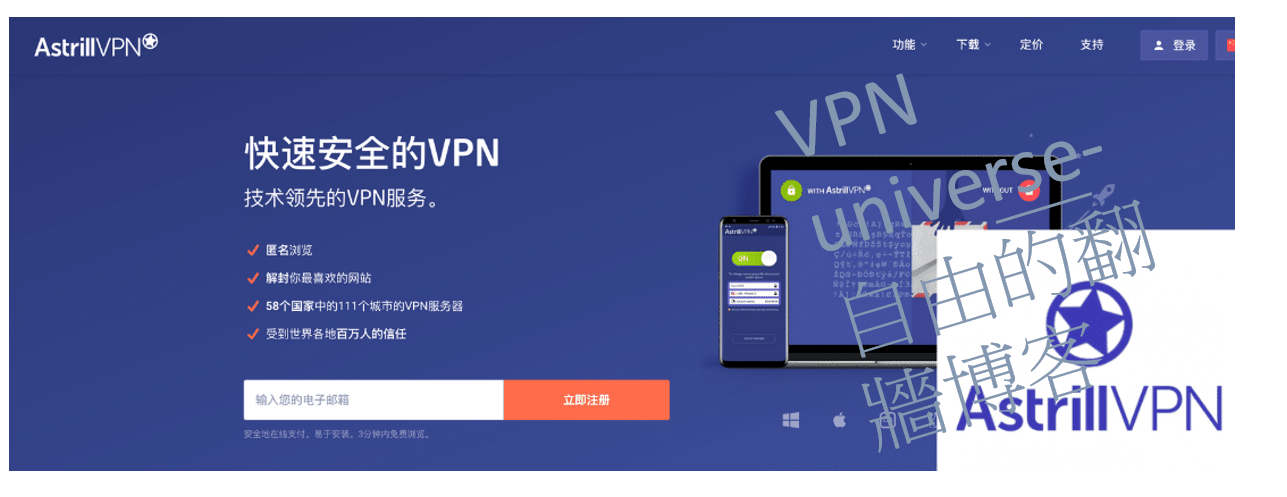
NordVPN
NordVPN, though globally recognized and praised for its security, faces challenges in India. The service has connectivity issues due to stricter regulations and its inability to adapt to evolving restrictions. While it offers robust privacy policies, its technical limitations in highly censored environments like India make it less effective than alternatives like ExpressVPN.
VyprVPN
VyprVPN, while previously a strong contender in the VPN market, has shown inconsistent performance in India. Speed and reliability have dropped significantly over the years. However, VyprVPN remains a reasonable option for accessing certain Indian content from abroad, thanks to its dedicated Indian servers.
IVacy Enhanced Edition
Despite IVacy VPN’s claim to provide extensive server options globally, its performance in India remains underwhelming. Recent speed tests in May 2023 revealed poor connectivity and unstable speeds. While it boasts features like military-grade encryption and 24/7 support, its practicality in India is questionable.
PureVPN: A Mixed Bag
PureVPN is one of the older VPN providers, founded in 2006, but its performance in India has been mediocre. While it supports major platforms and offers affordable pricing, its server availability and connectivity during peak times in India are lacking. PureVPN also removed servers in Indian cities like Mumbai and Delhi, reducing its appeal to users seeking localized content access.
Key Limitations:
- Poor connection stability.
- Suboptimal speeds for streaming.
- Limited success in bypassing Indian network restrictions.
Despite its claims of privacy protection, PureVPN’s reliability issues make it less ideal compared to competitors like Surfshark or ExpressVPN.
Key Takeaways
When selecting a VPN for India:
- Avoid services like ProtonVPN, AstrillVPN, and PureVPN, as they lack the performance and reliability necessary for bypassing restrictions effectively.
- Opt for trusted providers like ExpressVPN or StrongVPN, which are proven to perform well in India.
- Always test the VPN during the trial period and consider refund policies before committing to a subscription.
With the right VPN, you can enjoy secure, unrestricted internet access tailored to your needs in India.
This table lists VPN services that are overpriced, unreliable, or known to have limitations, helping users avoid unsuitable options.
| VPN Name | Description |
|---|---|
| Astrill VPN | Too expensive, limited functionality |
| CyberGhost | Overpriced, not value for money |
| Flyvpn | Unreliable and inconsistent |
| GreenVPN | Limited support, uncertain usability |
| Hotspot Shield | Free VPN, lacks robust privacy |
| IPVanish VPN | Expensive and average performance |
| NordVPN | No longer effective in some regions |
| Proton VPN | Unstable performance, low success rate |
| PureVPN | Poor speed performance in some regions |
| Turbo VPN | Limited features, unreliable |
| VyprVPN | Poor speed and stability |
| Windscribe | Free VPN, lacks comprehensive features |
| UrbanVPN | Free VPN, questionable data security |
| Lantern VPN | Open-source |
India VPN Recommendations and Essential Features
When selecting a VPN service in India, here are some critical factors to consider:
1. Stability and Reliability from Reputable Brands
Given India’s evolving regulations and growing digital landscape, it’s vital to use a VPN with robust protocols and reliable server networks. Protocols such as PPTP are now easily detectable and blockable. Moreover, if an IP is flagged, it becomes unusable, which is often a challenge with self-hosted SSR setups that require purchasing new IPs.
Opting for a reputable VPN brand ensures stability and long-term reliability. Large VPN providers, such as ExpressVPN or StrongVPN, are better equipped to adapt to technological advancements and maintain consistent services.
2. Personal Testing and Experience
The VPNs recommended here have been personally tested for performance, reliability, and usability in India. Unlike other lists that may rely on outdated or untested information, this guide ensures up-to-date and accurate insights. For instance, while some brands may claim high performance, many (like older domestic providers) may no longer function effectively in India.
Having multiple VPN options ready is essential, especially during crucial times when one service might face connectivity issues.
3. Support for Various Operating Systems
Most VPNs support common operating systems like Windows and macOS. However, Linux users may find limited support, as many VPNs only provide command-line applications. VPNs like ExpressVPN and StrongVPN are among the few offering full-featured Linux apps, ensuring compatibility with specialized distributions such as Ubuntu.
4. Device Connection Limits
ExpressVPN, StrongVPN, and FlowVPN allow up to 5 simultaneous device connections, while Surfshark offers unlimited device connections. Note that these limits only apply to active connections; you can still install the VPN software on unlimited devices but can only connect a limited number simultaneously.
5. Split Tunneling
Split tunneling allows you to decide which apps or services use the VPN connection and which operate through your regular connection. For example, you can stream local content like Hotstar without VPN while accessing international platforms like IEEE or Netflix through VPN, optimizing speed and efficiency.
6. Bandwidth and Data Limitations
Bandwidth and data limits are often misunderstood.
- Bandwidth determines how much data you can transfer at a time. More bandwidth means higher video quality and smoother downloads. Unlimited bandwidth ensures consistent speeds, even with heavy usage.
- Data limits, on the other hand, cap your total usage over a specific period. For instance, a 10GB daily limit might allow two or three HD movies or equivalent downloads.
Ensure the VPN you choose provides unlimited bandwidth for a seamless experience.
7. 24/7 Customer Support
Premium VPN providers like ExpressVPN and StrongVPN offer 24/7 live chat support for instant help. Many others rely on email, which may result in slower resolution times. For quick assistance, opt for a service with live chat options.
8. 30-Day Money-Back Guarantee
Most top VPN providers, including ExpressVPN and StrongVPN, offer a 30-day money-back guarantee, providing a risk-free opportunity to test their services. This ensures peace of mind if you’re unsure about your purchase.
VPN Privacy Features
1. No-Logs Policy
A no-logs policy is a critical feature for any VPN. It ensures that the provider doesn’t record or store user activity. However, it’s difficult to verify which providers truly adhere to this policy unless their claims are audited by third-party organizations. Some providers have been caught selling user data despite claiming otherwise. Always research and choose trusted VPN providers like ExpressVPN, NordVPN, or Surfshark.
2. Multiple Payment Options
Reliable VPN providers offer diverse payment methods such as credit cards (MasterCard, Visa), UPI, Net Banking, and international wallets like PayPal. Providers like ExpressVPN and Surfshark also support cryptocurrency payments like Bitcoin, enabling greater privacy for users in India.
3. Advanced Encryption Standards
VPNs use encryption protocols to protect your data. Common standards include AES-256 and RSA-4096. The larger the number, the more secure the encryption. These protocols safeguard your data by scrambling it and requiring encryption keys for decryption.
4. Various VPN Protocols
VPNs support protocols like OpenVPN, WireGuard, IKEv2, and L2TP/IPsec. Each protocol has its strengths in terms of speed, security, and compatibility. OpenVPN is a solid option for general use, while WireGuard is known for its high speed and modern encryption.
5. Automated VPN Features
Modern VPNs offer automated features like auto-connect when launching your device or switching networks. This ensures your connection stays secure without manual intervention.
6. Kill Switch Functionality
A kill switch is a critical feature that ensures your internet connection is disabled if the VPN unexpectedly disconnects. This prevents your real IP address from being exposed and maintains your privacy.
Analyzing VPN Servers and Optimization Tips
Importance of Server Distribution
The number and location of VPN servers significantly affect performance. Connecting to a server closer to your physical location generally results in faster speeds. For Indian users, servers in India, Singapore, or the Middle East often provide optimal connectivity.
Troubleshooting VPN Connection Issues
1. Switch Servers
If your connection drops, try switching to another server. Most VPN apps make this process straightforward and offer options to select servers optimized for speed or location.
2. Check Network Connectivity
Ensure your internet connection is stable. Restart your router or contact your Internet Service Provider (ISP) if you suspect issues with your base connection.
3. Change VPN Protocols
Switch to a different VPN protocol, such as OpenVPN or WireGuard. Some protocols work better depending on the network and ISP restrictions.
4. Use a Kill Switch
Enable the kill switch feature to block internet access during VPN disconnections, ensuring your data is not exposed.
Ensuring Your VPN Remains Active and Reliable
1. Opt for a Stable VPN Service
Choose a reputable VPN provider with a proven track record of reliability, such as ExpressVPN or NordVPN.
2. Enable Auto-Connect
Most VPNs offer auto-connect features that ensure the VPN is always running when your device is online.
3. Monitor VPN Status
Use built-in tools or third-party monitoring software to ensure your VPN connection remains stable.
Physical vs. Virtual Servers
- Physical Servers: These are actual hardware servers located in specific countries. They typically offer faster and more reliable performance.
- Virtual Servers: These simulate servers in locations where setting up physical servers is challenging or cost-prohibitive. For Indian users, virtual servers can provide connections to restricted content in regions like the US or UK.
Streaming and P2P Servers
- Streaming Servers: Optimized for accessing geo-restricted platforms like Netflix, Disney+, and Amazon Prime. These servers offer high bandwidth for seamless streaming.
- P2P Servers: Designed for torrenting and peer-to-peer file sharing, providing extra security and bandwidth for downloading large files.
By adhering to these features and troubleshooting tips, Indian users can make the most out of VPN services, ensuring privacy, access to restricted content, and optimal connection speeds.
Common Issues When Using VPNs in India
Below are frequently asked questions and solutions related to VPN usage in India. These have been compiled for better understanding and assistance.
1. StrongVPN Suddenly Stops Connecting. What Should I Do?
StrongVPN is one of the most popular VPN providers, but occasional connection drops can occur. Common reasons include:
- Server Outages: StrongVPN servers may face temporary disruptions in your region.
- Unstable Internet Connection: Check your local network stability.
- Server Overload: The server you are using might be under heavy traffic.
- Configuration Issues: Double-check your VPN settings and credentials.
Solution:
- Restart your router and the StrongVPN client.
- Switch to a different server within the app.
- Contact StrongVPN’s support team for further assistance.
2. “Suspicious Activity Detected, Please Contact Support” Error While Purchasing StrongVPN
This error often occurs due to using a flagged public proxy IP or email.
Solution:
- Use a different email address or network to complete the purchase.
- Contact StrongVPN support with details, including your current IP address, so they can investigate the issue.
3. ExpressVPN Not Connecting After Firewall Updates
Firewall upgrades can disrupt connections to popular VPNs like ExpressVPN. This is due to sudden blocking of commonly used nodes.
Solution:
- Switch to alternative nodes within the ExpressVPN app.
- Try using the L2TP protocol if OpenVPN faces issues.
- Contact customer support for node-specific advice.
4. Surfshark Disconnects After Firewall Updates
Surfshark offers a specialized feature for connecting to the fastest server, but connection issues can occur.
Solution:
- Ensure you have the latest Surfshark app version installed.
- Check your internet connection stability.
- Switch to a different Surfshark server within the app.
5. Can I Use a Promo Code to Renew ExpressVPN After 15 Months?
Yes, you can renew using a promo code by following these steps:
- Use a new email address to create a new account and avail discounts such as 3 months free.
- Renew your old account at the full price if no discount is available.
Additional Tip:
- Clear browser cookies or use an incognito window when signing up to avoid being flagged as a returning customer.
6. Slow or Inaccessible Indian Websites After Connecting to ExpressVPN or StrongVPN
Connecting to VPN routes your data through international servers, which may increase latency for local websites.
Solution:
- Use a split tunneling feature to exclude Indian websites from VPN routing.
- Update DNS settings:
- Open the StrongVPN/ExpressVPN client.
- Go to settings -> advanced -> custom DNS.
- Use DNS such as
8.8.8.8(Google DNS) or other public DNS servers.
- If the problem persists:
- Configure UDP 500 and UDP 4500 port forwarding on your router.
- Enable OpenVPN/IPSec passthrough on the router.
- Allow VPN traffic in your computer’s firewall settings.
7. Unable to Access StrongVPN’s Global Servers
Some users encounter difficulties connecting to international servers due to ISP restrictions.
Solution:
- Update the DNS settings as described above.
- If the issue persists, contact StrongVPN support with a detailed error report.
- Alternatively, try a different VPN protocol like OpenVPN or IKEv2.
These solutions address the most common issues Indian users face while using VPNs like ExpressVPN, StrongVPN, or Surfshark. If problems continue, reaching out to the VPN provider’s customer support is often the fastest way to resolve them.
StrongVPN Installation Guide
Step-by-Step Instructions to Download and Use StrongVPN
After purchasing your StrongVPN subscription, follow these steps to install and start using it. This guide uses the Windows system as an example. For instructions on other devices such as iOS, Linux, macOS, or Android, please refer to my other articles.
Step 1: Register and Download StrongVPN
- After completing your purchase, log in to the StrongVPN user dashboard via StrongVPN Official Website.
- Navigate to the StrongVPN Client section. The system will automatically detect your operating system.
- If the system does not auto-detect, manually select your operating system to download the appropriate software.
Step 2: Install StrongVPN
- After downloading, follow the on-screen instructions to complete the installation process.
- During installation, the system may ask if you want to allow the StrongVPN application to run. Click Yes when prompted.
- You may also be asked to allow the application to start. Again, click Yes to proceed.
Step 3: Log In to StrongVPN
- Open the StrongVPN application.
- Enter your registered email address and the password you set up via email to log in.
Step 4: Select a Server
- Use the Smart Location feature within StrongVPN to automatically choose the best server for your location.
- Alternatively, manually select a server location based on your preference.
- For users in China, servers in Hong Kong, Taiwan, and Japan have been tested and provide the best performance for bypassing restrictions.
Additional Notes
- StrongVPN offers robust performance and reliable connectivity, making it an excellent choice for bypassing geographic restrictions and ensuring online privacy.
- Refer to my other articles for detailed usage tips and troubleshooting guides.
Enjoy a secure and unrestricted internet experience with StrongVPN!
ExpressVPN Installation Guide
Step-by-Step Guide to Download and Use ExpressVPN
After successfully purchasing your ExpressVPN subscription, follow these steps to install and use it. This guide uses macOS as an example. For instructions on other devices such as iOS, Linux, Windows, or Android, please refer to my other articles.
Step 1: Purchase ExpressVPN
Make sure to purchase ExpressVPN using the ExpressVPN Discount Link for the best deal. Visit the ExpressVPN Official Website to download the application. ExpressVPN will automatically detect your device.
Alternatively, log in to your ExpressVPN account through the dashboard. If prompted, enter your account credentials and click Log In.
Step 2: Retrieve Your Activation Code
To use ExpressVPN on your Mac, you need to locate your activation code. It will appear in your account dashboard.
Step 3: Install the Application
- Locate the downloaded file on your computer and open it.
- A pop-up window will appear asking if you want to run the program to verify its installation. Click Continue.
- Proceed by clicking Continue until you reach the “Installation Type” screen.
- Choose a local installation location and click Install.
- Wait for the installation to complete and click Close.
Step 4: Log In to ExpressVPN
- Open the ExpressVPN app and click Sign In.
- Enter your account credentials or paste your activation code.
- If prompted, macOS may ask if you want to allow ExpressVPN IKEv2 to be added to the VPN configuration. Click Allow to continue.
Step 5: Connect and Start Using ExpressVPN
- To connect to a VPN server, click the circular button in the middle of the app.
- By default, ExpressVPN will recommend the best server location, called the Smart Location, for optimal performance.
- Once connected, the red circle will turn green, indicating that the VPN is active. You can test to confirm that your connection is working.
To disconnect, click the central button again to return to the disconnected state. Use the location menu to switch countries. For users in China, it is recommended to connect to servers in Hong Kong, Taiwan, or Japan.
Additional Notes
- Each subscription allows up to five devices to be connected simultaneously.
- For further ExpressVPN operational details, refer to my other articles.
Enjoy secure and unrestricted browsing with ExpressVPN!
Surfshark Installation Guide
Step-by-Step Guide to Download and Use Surfshark
After successfully purchasing your Surfshark subscription, follow these steps to install and use it. This guide uses Windows as an example. For instructions on other devices such as iOS, Linux, Mac, or Android, please refer to my other articles.
Step 1: Download Surfshark
Visit the official Surfshark website and download the software for your device. After downloading, proceed with the installation.
During the installation process, the system will ask for permissions. Click Yes to continue.
Step 2: Log In to Your Account
After the installation is complete, open the Surfshark application. Enter your account credentials (email and password) to log in.
Step 3: Connect to Surfshark
Click the Connect button in the middle of the interface to start your VPN connection. Once connected, you’ll see a confirmation screen showing that Surfshark is running. Use the options on the left-hand side to select your preferred country for the VPN connection.
With Surfshark successfully installed and connected, you can now enjoy secure and private internet browsing while accessing global content!
FlowVPN Installation Guide
Step-by-Step Guide to Download and Use FlowVPN
After successfully purchasing your FlowVPN subscription, follow these steps to install and use it. This guide will use Windows as an example. For other devices such as iOS, Linux, Mac, or Android, please refer to my other articles.
Step 1: Select Your Device and Download the Software
Visit the FlowVPN website and download the application for your corresponding device. Options include iOS, Linux, Windows, Mac, or Android. For this guide, we’ll use Windows as the example.
Step 2: Install the Software
After downloading the software, double-click the installation file and follow the on-screen instructions to complete the installation.
Step 3: Connect to FlowVPN
- Open the FlowVPN application.
- Click Connect to start the VPN connection.
- Use the drop-down menu to select your preferred connection country.
- Once connected, your Windows system will display a notification indicating that FlowVPN is successfully connected.
With FlowVPN successfully installed and running, you can now enjoy a secure and private internet connection while accessing content from around the world!
What Can You Do with a VPN in India?
Using a VPN opens up a world of possibilities by granting access to websites and services that may otherwise be restricted in your region. Whether you’re looking for entertainment, news, education, or communication platforms, a VPN can unlock countless resources. Here’s a comprehensive guide to the types of content you can access with a VPN tailored for users in India.
Social Media Platforms
Stay connected with friends, family, and colleagues using popular platforms:
Streaming Services
Access global entertainment with these streaming platforms:
Search Engines and Research Tools
For finding information or conducting in-depth research:
News Platforms
Stay updated with international news:
Gaming Platforms
Play and explore global gaming content:
Music Streaming
Enjoy music from around the world:
Online Learning Platforms
Expand your knowledge with these e-learning platforms:
File Sharing and Torrents
For peer-to-peer file sharing:
Detailed Resource Categories
| Category | Option 1 | Option 2 | Option 3 | Option 4 | Option 5 |
|---|---|---|---|---|---|
| Video Streaming | Netflix | Hulu | Disney+ Hotstar | BBC iPlayer | Prime Video |
| Music | Spotify | Apple Music | SoundCloud | Tidal | Pandora |
| Research | Google Scholar | PubMed | ArXiv | IEEE | JSTOR |
| News | CNN | BBC | Reuters | The Guardian | Al Jazeera |
| Gaming | Steam | Epic Games Store | Twitch | GOG | Battle.net |
| Social Media | Telegram |
Note: Always ensure that your usage complies with local laws and avoids accessing illegal content.
Is Using a VPN in India Legal?
Using a VPN in India is not illegal, but its use must comply with the country’s laws and regulations. The Indian government has not explicitly banned VPNs, but it has taken steps to regulate internet use and protect national security.
According to new CERT-In (Computer Emergency Response Team) guidelines issued in 2022, VPN providers operating in India are required to store customer data for up to five years, including user IP addresses, names, and contact details. While this regulation has led some VPN providers to shut down their Indian servers, users can still access these VPN services by connecting to servers outside India.
If you use a VPN responsibly and do not engage in any illegal activities, it is highly unlikely to face any legal issues in India.
Risks of Free VPNs: Why You Should Avoid Them
While VPNs are a powerful tool for protecting privacy and bypassing censorship, free VPN services come with significant risks. Here’s why you should avoid them:
-
Data Privacy Issues
Free VPN providers often monetize their services by collecting and selling user data to third parties, including advertisers. This means your browsing history, location, and other personal information might be exposed, defeating the very purpose of using a VPN. -
Poor Performance
Free VPNs usually have limited resources, leading to slower speeds, frequent disconnections, and long wait times. This can make browsing, streaming, or gaming extremely frustrating. -
Risk of Malware
Some free VPN services are known to install malware such as spyware or adware on your device. These malicious programs can compromise your security, steal sensitive information, or even turn your device into part of a botnet. -
Lack of Security Features
Free VPNs often lack essential features like strong encryption, kill switches, or DNS leak protection, leaving your data vulnerable to interception. -
Limited Server Options
Free VPNs provide access to only a small number of servers, which may already be overloaded or blocked, resulting in poor performance and restricted access to content.
Recommendations
Instead of using a free VPN, consider investing in a reliable paid VPN that prioritizes user privacy and offers strong encryption, fast speeds, and a wide server network. Trusted providers like ExpressVPN, NordVPN, and Surfshark have proven records of delivering high-quality service without compromising user privacy.
Risks of Free VPNs
-
Inadequate Data and Privacy Protection
Free VPNs often monetize their services by selling user data to third-party advertisers or other stakeholders, compromising your privacy. -
Poor Performance
Free VPNs typically have slow speeds, frequent disconnections, and longer wait times, which can lead to a frustrating experience. -
Security Risks
Some free VPNs may install malicious software on your device, such as adware, spyware, or other malware, potentially compromising your data and device security. -
Legal Risks
Certain free VPNs may operate without proper licensing or engage in unauthorized network access, potentially exposing users to legal consequences. -
Instability
Free VPN services often lack reliability and may shut down unexpectedly, leaving users without access or support. -
Limited Support and Updates
Free VPNs rarely provide robust customer support or timely updates to protect against emerging threats and vulnerabilities.
Why Should You Avoid Free VPNs?
-
Ads and Reduced Speed
Free VPNs often come with intrusive advertisements that can slow down your internet connection, affecting activities like streaming videos. -
Unknown Providers
Many free VPN services are operated by obscure companies with little accountability. If they disappear, there’s no recourse for users. -
Malware Risks
Free VPNs may include malicious software or unauthorized tools like cryptocurrency mining programs, putting your personal information—including credit card and account credentials—at risk. -
Legal Trouble
In several cases, users of free VPNs have faced legal issues. For example, poorly managed services like “Old Net VPN” and “Colorful Lantern VPN” have led to users being questioned by law enforcement in some regions.
Conclusion
Avoid using free VPNs entirely. The risks—ranging from privacy breaches to potential fines—far outweigh any cost savings. Investing in a reliable paid VPN, such as ExpressVPN or NordVPN, is a safer and more efficient choice. A year-long subscription to a trusted VPN can easily offset the potential costs and risks associated with using a free one.
Why Not Set Up Your Own VPN?
Reasons to Avoid Setting Up Your Own VPN: Advice for Users in India
When we talk about bypassing restrictions, such as accessing region-locked content or restricted online resources, using a Virtual Private Network (VPN) often comes to mind. While some might consider setting up their own VPN, this approach is generally not recommended. Here are the key reasons why:
1. Technical Complexity
Setting up your own VPN requires significant technical expertise. This includes tasks like server installation and maintenance, configuring data encryption, implementing robust network security measures, and understanding internet protocols. For most users, these are highly complex and time-consuming endeavors that can take weeks or months to master.
2. Legal Risks
Using or operating a VPN in certain countries might expose you to legal risks. Depending on local laws, accessing restricted websites or operating an unauthorized VPN server could lead to fines or other penalties. Using established, reputable public VPN services often provides better anonymity and legal safety compared to self-hosted solutions.
3. Cost of Maintenance
Setting up your own VPN requires financial investment. This includes renting a server, purchasing necessary software, and possibly hiring professionals for technical support. For individuals or small groups, this can become a substantial and ongoing expense.
4. Stability and Speed Issues
Self-hosted VPNs often suffer from stability and speed challenges. You need to carefully consider factors like the server’s geographical location, bandwidth limitations, potential network congestion, and uptime reliability. On the other hand, public VPN providers typically operate large server networks optimized for performance and offer seamless experiences for users across various locations.
5. Lack of Scalability
As internet usage grows, self-hosted VPNs may struggle to meet increasing demands. Expanding server capabilities, upgrading hardware, or optimizing performance requires both expertise and additional investment.
Core Knowledge You Must Know About VPNs
What is the Basic Principle of a VPN?
A Virtual Private Network (VPN) encrypts your data through complex mathematical algorithms, creating a secure “tunnel” between your device and the internet. This ensures that others cannot view your data. VPNs hide metadata sent by your browser, such as time zone, operating system, and even screen resolution. While this data might not directly identify you, it can uniquely fingerprint your activity, which governments, advertisers, and hackers might exploit. This is why a VPN is essential for privacy and security.
What is the Great Firewall of China?
China’s “Great Firewall” is a comprehensive censorship system managed by the Ministry of Public Security. It monitors and restricts internet content that can be accessed within the country. Started in 1998, it employs techniques like IP blocking and URL filtering. For instance, platforms like Google, Facebook, and Twitter are blocked in China to prevent the rapid dissemination of information. This stringent censorship highlights the need for tools like VPNs to access restricted content.
What Can a VPN Do?
VPNs can mask your IP address, making it appear as though you’re browsing from a different location. This opens up possibilities such as:
- Unlocking Streaming Platforms: Access content libraries from different countries on platforms like Netflix.
- Bypassing Censorship: Overcome geographic restrictions imposed by governments.
- Stopping Online Tracking: Encrypt data to prevent ISPs and websites from tracking your location and metadata.
- Accessing Private Networks: Safely connect to private networks remotely, ensuring a barrier between public and private data.
Is a VPN Effective?
A reputable paid VPN service like ExpressVPN or StrongVPN is highly effective. However, free VPNs often compromise user privacy. For example, some free VPNs have been found to exploit users’ devices for malicious activities or sell user data.
Do You Need a VPN in Hong Kong?
Yes, while Hong Kong enjoys more internet freedom than mainland China, increased surveillance and censorship pose risks. A VPN protects your privacy and ensures secure access to restricted content.
Do You Need a VPN in Taiwan?
Taiwan boasts unrestricted internet access. However, using a VPN is recommended when connecting to public Wi-Fi to safeguard your data.
Where Else is a VPN Necessary?
Besides China, VPNs are vital in:
- Russia: Overcoming social media and news site restrictions.
- Iran: Accessing blocked content like social media and news.
- Turkey: Bypassing blocks on platforms like Twitter and YouTube.
- UAE: Accessing VoIP services like Skype and WhatsApp.
Even in countries with fewer restrictions, VPNs protect privacy, prevent tracking, and unlock geo-restricted content.
What to Do If Your Paid VPN Doesn’t Work?
- Check Your Settings: Ensure proper VPN configuration and correct credentials.
- Restart Devices: Restart your computer and VPN client.
- Contact Support: Reach out to your VPN provider’s customer support for assistance.
- Remote Assistance: Allow the support team to troubleshoot your issue if necessary.
The Use and Benefits of Double or Multi-Hop VPNs
Double VPN, also known as multi-hop VPN, routes your internet connection through two or more VPN servers instead of just one. This approach enhances security and privacy but may impact connection speeds. Here are some potential benefits and use cases:
1. Enhanced Privacy Protection
Using double or multi-hop VPNs makes it significantly harder to trace your online activities. When your data passes through a second VPN server, the original IP address is already masked by the first VPN server. This means even if someone intercepts and analyzes data from the second server, they can only see the IP address of the first server, not your real one.
2. Prevention of Surveillance and Data Leaks
Double or multi-hop VPNs add an extra layer of security, which is especially beneficial when accessing sensitive information from insecure networks such as public Wi-Fi. Even if one VPN connection is compromised, attackers must still bypass the additional layers to access your data.
3. Circumvention of Strict Network Censorship
In regions with strict network censorship, such as China or Iran, double or multi-hop VPNs can help. By setting up VPN servers in different countries or regions, you can effectively bypass geographic restrictions and censorship.
Considerations and Drawbacks
While double or multi-hop VPNs provide enhanced privacy and security, they come with trade-offs:
- Reduced Speed: The additional encryption and decryption processes may slow down your internet connection.
- Complex Setup: Managing multiple VPN connections can be more complex compared to a single VPN setup.
Summary
Double or multi-hop VPNs are valuable tools for users seeking additional privacy and security. However, users should weigh the potential trade-offs in performance and convenience before implementing this strategy.
Impact of VPN on Internet Speed
Using a Virtual Private Network (VPN) offers many advantages, such as enhanced security, privacy, and bypassing geographic restrictions. However, these benefits often come with a trade-off: a potential reduction in internet speed. Below is an exploration of these impacts:
1. Encryption and Decryption Overheads
VPNs create an encrypted “tunnel” for routing your internet traffic through a remote server. The process of encrypting and decrypting data can introduce latency. The degree of delay depends on the quality of the VPN provider and the specific encryption protocol used.
2. Geographic Location of Servers
The physical distance between you and the VPN server affects speed. Generally, the farther the server is from your location, the higher the latency. For instance, accessing content hosted in a geographically distant country might lead to slower internet speeds.
3. Server Load
During peak times, VPN servers can become overloaded, causing slower connections. Premium VPN providers mitigate this by investing in additional servers and robust infrastructure to balance traffic.
4. Baseline Internet Speed
It’s essential to note that a VPN cannot exceed the original speed of your internet connection. If your connection is already slow, using a VPN may exacerbate performance issues.
In summary, while VPNs can impact internet speed, the extent of this effect depends on various factors. Opting for a high-quality VPN provider can significantly minimize these impacts.
Differences Between Anti-Censorship Software and VPN
“Anti-censorship software” and “VPN” (Virtual Private Network) are commonly mentioned when discussing ways to bypass internet censorship and access restricted content. Although they share some goals, there are key distinctions between the two. Here’s an analysis:
1. Anti-Censorship Software: Tailored for Circumventing Restrictions
Anti-censorship software is specifically designed to bypass stringent censorship, such as accessing restricted websites from within a controlled network like the Great Firewall of China.
Examples of popular anti-censorship tools include Shadowsocks and Lantern, which employ advanced methods to disguise their traffic as normal, uncensored internet activity. These tools focus solely on defeating censorship systems and may not offer robust encryption or general privacy protection.
2. VPN: A Comprehensive Privacy and Security Tool
VPNs are broader in scope. They not only help bypass censorship but also provide additional benefits like enhanced security and privacy.
VPNs route your internet traffic through an encrypted “tunnel” to a remote server, masking your IP address and encrypting your data during transmission. This makes your online activities invisible to external parties, such as ISPs or hackers.
While many VPNs are effective at circumventing censorship, their broader focus on security and privacy may sometimes make them less optimized for specific censorship scenarios compared to dedicated anti-censorship software.
Choosing Between Anti-Censorship Software and VPN
When deciding which tool to use, consider your specific needs and network environment:
- For strict censorship environments, such as accessing restricted websites in heavily monitored regions, dedicated anti-censorship tools may be more effective.
- For overall online privacy, security, and unrestricted internet access, VPNs offer a more versatile solution.
Both tools serve valuable purposes, and in some cases, combining them might provide the best results.
How to Regularly Change VPN Providers to Enhance Security
While VPNs provide a robust layer of protection for online activities, regularly switching VPN providers can further enhance your security. Here’s a step-by-step guide on implementing this strategy effectively:
1. Establish a Regular Switching Schedule
Create a schedule to periodically change your VPN provider. The frequency can depend on your specific needs and budget. A typical recommendation is to switch every 3-6 months.
2. Research New VPN Providers Thoroughly
Before transitioning to a new VPN provider, conduct thorough research to ensure it meets your requirements. Look for features such as:
- Strong encryption standards
- A strict no-logs policy
- Adequate server coverage in regions relevant to you
- High-speed and reliable connections
3. Fully Deactivate and Uninstall the Previous VPN
Before activating a new VPN service, make sure to completely deactivate and uninstall the old one from your devices. This minimizes the risk of conflicts or potential security vulnerabilities.
4. Test the New VPN Provider Thoroughly
After setting up the new VPN, perform a series of tests to ensure optimal performance. Key aspects to evaluate include:
- Connection speed and stability
- Compatibility with your devices and operating systems
- Protection against DNS leaks, WebRTC leaks, and other vulnerabilities
5. Consider the Costs and Benefits
While regular VPN switching can bolster your security, it also requires additional effort, time, and cost. Balance the potential benefits of increased privacy and security against the logistical and financial implications.
By following these steps, you can maintain a higher level of online security and stay ahead of potential threats. Regularly changing VPNs ensures that no single service has prolonged access to your data, further protecting your privacy.
Best VPN for Apple TV: Why FlowVPN is the Pioneer for Apple TV VPN
When it comes to innovation, reliability, and security, FlowVPN leads the pack as a standout VPN provider. Recently, FlowVPN has introduced a groundbreaking Apple TV VPN, revolutionizing how we access global entertainment from the comfort of our homes.
Wherever you are in the world, FlowVPN’s Apple TV VPN opens the doors to limitless possibilities. Whether it’s movies, music, games, or your favorite shows, geographic restrictions are no longer an issue. Now, the world’s entertainment is just a click away in your living room.
FlowVPN also prioritizes security. With state-of-the-art encryption and a strict no-logs policy, FlowVPN ensures your data is always protected while granting access to the content you love. This blend of innovation and security makes FlowVPN an industry leader, setting a new standard for Apple TV VPN services. From streaming speed to availability and privacy, FlowVPN is unparalleled.
FlowVPN Setup Guide for Apple TV
For detailed instructions, refer to: FlowVPN for Apple TV
FlowVPN’s Apple TV VPN requires tvOS 17 and must be installed through Apple’s TestFlight app, as the service is currently in beta. Here’s how to set it up:
-
Sign Up for FlowVPN
If you’re new to FlowVPN, create an account here:
FlowVPN (Free 2-Day Trial) -
Download TestFlight on iOS/macOS
Install the TestFlight app on your iPhone, iPad, or Mac:
Download TestFlight -
Join FlowVPN Beta for Apple TV
Enroll in the beta program:
FlowVPN Beta for Apple TV -
Install TestFlight on Apple TV
Download TestFlight from the Apple TV App Store:
Download TestFlight for Apple TV -
Install FlowVPN
Open the TestFlight app on your Apple TV and install FlowVPN.
FlowVPN’s Apple TV VPN isn’t just keeping up with the times—it’s shaping the future. While others strive to innovate, FlowVPN has already redefined the standard for VPN services tailored for Apple TV users.
VPN and Unlocking Netflix Locations
Netflix is one of the most popular streaming services, offering a vast library of movies and TV shows. However, the content available on Netflix varies by country or region. If you are in a region where Netflix is not supported, you won’t have access to its services. This is where a VPN (Virtual Private Network) comes in.
By connecting to a VPN server in a region supported by Netflix, you can trick Netflix into believing you are located in that region. This allows you to unlock Netflix and enjoy all your favorite shows and movies. Apart from Netflix, VPNs can also be used to access other popular streaming platforms such as BBC iPlayer, Hulu, and HBO.
However, Netflix has improved its VPN detection and blocking technologies, making it more challenging to use VPNs effectively. We regularly test top VPN providers to ensure our recommendations remain up to date. Below is a table showing the regions each VPN service can currently unlock.
| VPN Service | Unlockable Locations |
|---|---|
| ExpressVPN | United States, Canada, UK, France |
| StrongVPN | United States, UK, Germany, Japan |
| Surfshark | Canada, Australia, Japan, Germany |
| FlowVPN | United States, Canada, UK, Australia |
Disney+ and VPN
Disney+ is another hugely popular streaming service that often poses challenges when using VPNs. Like Netflix, Disney+ offers different content libraries depending on the user’s location. For example, subscribers in the United States may have access to a different selection of shows compared to those in the UK, Japan, or Germany.
With a VPN, you can virtually change your location to access Disney+ content from other regions. However, Disney+ has also enhanced its VPN detection and blocking measures, making it more difficult to bypass its geographic restrictions.
We regularly test top VPN providers to ensure accurate recommendations. Here are the current locations that each VPN can unlock for Disney+:
| VPN Provider | Unlockable Locations |
|---|---|
| ExpressVPN | France, United States, Australia, Canada |
| StrongVPN | UK, United States, South Africa, Australia |
| Surfshark | United States, UK, Canada, Australia, Japan |
| FlowVPN | United States, UK, Germany, Australia, Japan |
Overview of Common Proxy and VPN Technologies
When discussing online security, a variety of tools and methods are available. Popular choices include VPNs (Virtual Private Networks) and proxy technologies like SSR (ShadowsocksR), V2Ray, and Trojan. These tools have unique advantages and use cases, and it’s essential to understand their differences to choose the best solution for your needs.
VPN vs. SSR: Key Differences
-
VPN (Virtual Private Network):
VPNs encrypt all data transmitted between your device and a remote server, making it almost impossible for third parties to intercept or misuse your data. They also mask your IP address by routing traffic through the VPN server. However, they require trust in the VPN provider, as your activity is visible to them. -
SSR (ShadowsocksR):
SSR forwards data through a secure server, ensuring encryption. It’s commonly used to bypass censorship and firewalls. While SSR offers speed advantages over VPNs, its security may be less robust due to its simplicity and open-source nature.
Heterogeneous Computing in Circumvention Technologies
Modern circumvention tools often combine multiple technologies, such as VPNs, SSR, V2Ray, and Trojan, in a framework called Heterogeneous Computing. This approach leverages the strengths of each protocol, ensuring robust performance, scalability, and enhanced security.
- Why It Matters in VPNs:
- Performance Optimization: Distributing computational loads across multiple systems improves speed and efficiency.
- Scalability: Ensures consistent user experiences even during high-traffic periods.
- Redundancy: Offers multiple fallback options if one protocol or server is blocked.
Key Proxy Technologies
1. SSR (ShadowsocksR)
ShadowsocksR (SSR) is a proxy software widely used to bypass internet censorship and firewalls.
- Features:
- Provides secure, encrypted tunneling of internet traffic.
- Considered an improvement over its predecessor, Shadowsocks.
- Popular among privacy-conscious users due to its efficiency and enhanced encryption.
2. V2Ray
V2Ray is an open-source, advanced proxy tool that routes internet traffic securely.
- Features:
- Supports multiple protocols, including Vmess, Shadowsocks, Socks, and HTTP.
- Obfuscation (obfsproxy) to disguise traffic patterns.
- Compatible with Windows, macOS, Linux, and Android.
- Offers a built-in web server for static file hosting.
- Limitations:
Research from Beijing Institute of Technology has proposed methods for identifying V2Ray traffic, potentially reducing its effectiveness in regions with advanced censorship systems.
3. Trojan
Trojan disguises traffic as regular HTTPS requests, bypassing firewalls and deep packet inspection (DPI).
- Features:
- Operates as a stealthy and secure circumvention tool.
- Uses industry-standard encryption to evade detection.
- Ideal for regions with stringent internet restrictions.
- Caution:
Trojan is also a term for malware, emphasizing the need for trusted sources when using this protocol.
Comparative Insights
| Protocol | Strengths | Weaknesses | Best For |
|---|---|---|---|
| VPN | High encryption, IP masking, geo-bypass | Requires trust in the provider | General online security and privacy |
| SSR | Lightweight, efficient, bypasses censorship | Open-source risks, potential detection | Bypassing censorship efficiently |
| V2Ray | Flexible, supports multiple protocols | Susceptible to advanced DPI techniques | Advanced circumvention users |
| Trojan | Stealthy, disguises as HTTPS traffic | Requires proper configuration | Evasion in high-censorship regions |
Conclusion
Whether using a VPN, SSR, V2Ray, or Trojan, the best choice depends on your specific needs and technical expertise. For general use, VPNs remain the most straightforward option, providing a balance between security and convenience. For more advanced scenarios, a combination of these tools under a heterogeneous framework ensures robustness and adaptability. Always prioritize trusted providers and methods to safeguard your privacy and security.
Differences Between VPN and Tor and Their Use Cases
Both VPNs (Virtual Private Networks) and Tor (The Onion Router) are tools designed to enhance online privacy and security. However, they differ significantly in design, functionality, and appropriate use cases. Below is a detailed comparison of these two technologies and their ideal scenarios:
1. VPN: Encryption and IP Masking
A VPN establishes an encrypted “tunnel” between your device and a remote server. Its key features and use cases include:
-
Data Encryption:
VPNs encrypt your data before it leaves your device, ensuring that third parties attempting to intercept it only see encrypted content. -
IP Address Masking:
By routing your traffic through a VPN server, your real IP address is hidden, and you appear to be browsing from the server’s location. -
Bypassing Geographic Restrictions:
VPNs allow you to access content restricted by location, such as region-locked streaming services, by making your traffic appear as if it’s coming from the VPN server’s region.
Limitations:
VPN users must trust their VPN provider, as the provider can theoretically monitor their activity. Choosing a VPN with a strict no-logs policy is crucial for privacy.
2. Tor: Multi-Layer Encryption and Anonymity
Tor provides heightened anonymity by routing data through multiple volunteer-operated servers (nodes) worldwide, encrypting it multiple times. Key features and use cases include:
-
Multi-Layer Encryption:
Data is encrypted three times before entering the Tor network and decrypted layer by layer as it passes through three nodes (entry, middle, and exit). This process ensures robust anonymity. -
Anonymity:
No single node in the Tor network knows the complete path of your connection, making it nearly impossible for observers to trace your activities. -
Accessing Hidden Services:
Tor allows access to hidden services not available on the regular internet, often referred to as the “dark web.”
Limitations:
Tor is slower than VPNs because of its multi-layered encryption and routing process. Additionally, due to its association with illegal activities, Tor users may face scrutiny or false assumptions of illicit intent.
VPN vs. Tor: Choosing the Right Tool
| Feature | VPN | Tor |
|---|---|---|
| Encryption | Encrypts data in a single layer | Encrypts data in multiple layers |
| IP Masking | Masks your IP with the VPN server’s IP | Completely hides your IP through multi-node routing |
| Speed | Generally fast | Slower due to multiple nodes |
| Bypass Geo-Restrictions | Excellent | Limited |
| Anonymity | Moderate | High |
| Access to Hidden Services | Not available | Available |
Use Cases
- VPN:
- Streaming geo-restricted content (e.g., Netflix, Hulu).
- Securing sensitive activities over public Wi-Fi (e.g., online banking).
- Gaming with reduced latency and improved server access.
- Tor:
- Browsing with maximum anonymity, especially in restrictive regions.
- Accessing hidden services or researching sensitive topics.
- Communicating securely when privacy is paramount.
Final Thoughts
Both VPNs and Tor excel in enhancing online privacy, but their effectiveness depends on the context. For speed, usability, and geo-restriction circumvention, VPNs are the preferred choice. For high-level anonymity and accessing hidden services, Tor is unmatched.
Differences Between VPN and Proxy Servers
Both VPNs and proxy servers provide privacy and anonymity on the internet, but their functionality and security levels differ significantly. Below is a comparison of these two technologies:
1. How They Work
-
VPN (Virtual Private Network):
A VPN creates a secure, encrypted tunnel between your device and the VPN server. All your internet traffic is routed through this tunnel, making your data invisible to external parties. Your device appears to use the VPN server’s IP address. -
Proxy Server:
A proxy server acts as an intermediary between your device and the internet. Your internet traffic is sent to the proxy server, which then forwards it to its destination. The server also returns responses from the internet back to you.
2. Security and Privacy
-
VPN:
VPNs provide strong encryption, ensuring a high level of security and privacy. This is particularly useful for performing sensitive tasks, such as online banking or sharing confidential information, especially on unsecured networks like public Wi-Fi. -
Proxy Server:
Proxy servers do not provide encryption. While they can offer some degree of anonymity, your data can still be intercepted and viewed by third parties during transmission.
3. Speed and Performance
-
VPN:
Due to encryption, VPNs may slightly reduce your internet speed. However, high-quality VPN providers minimize this impact by optimizing their servers and protocols. -
Proxy Server:
Since proxy servers do not encrypt data, they are often faster than VPNs. However, free or public proxy servers may experience heavy usage, leading to reduced speed and reliability.
In summary, while both VPNs and proxy servers enhance online privacy, their differences in functionality and security make them suitable for different use cases. For robust security and data protection, VPNs are the preferred choice.
Common VPN Protocols
VPNs, or Virtual Private Networks, are online services that allow users to connect to the internet through a secure, encrypted connection. This makes it difficult for outsiders to intercept or tamper with the data being transmitted. There are several types of VPN protocols, each with its own advantages and disadvantages:
-
PPTP (Point-to-Point Tunneling Protocol):
One of the oldest and simplest VPN protocols, PPTP is not as secure as newer options. However, it is relatively easy to set up and compatible with most internet connections. -
L2TP/IPsec (Layer 2 Tunneling Protocol with IPsec):
A more secure option commonly used by businesses and organizations. It offers better security and performance than PPTP but may require more complex setup. -
SSTP (Secure Socket Tunneling Protocol):
Provides good security and performance but is mainly available on Windows devices. -
IKEv2/IPsec (Internet Key Exchange version 2 with IPsec):
A newer protocol that is gaining popularity for its speed and security, making it a reliable choice for modern VPN users. -
OpenVPN:
A free, open-source protocol that works on most types of devices. It offers strong security and is highly configurable, making it a favorite among advanced users.
Choosing the right protocol depends on your needs—whether you prioritize speed, security, or ease of use.
Detailed VPN Speed Test Report
Global VPN Speed Performance by Region
The chart below displays the speed test results of four popular VPN services—ExpressVPN, FlowVPN, Surfshark, and StrongVPN—across major global regions. The blue bars represent download speeds, while the red bars represent upload speeds. These visualizations provide an intuitive look at the performance of each VPN service in Asia, Europe, North America, South America, Africa, and Oceania.
It is important to note that speed test results may vary due to factors such as server location, network conditions, and testing times. These figures serve as a guideline rather than definitive performance indicators.
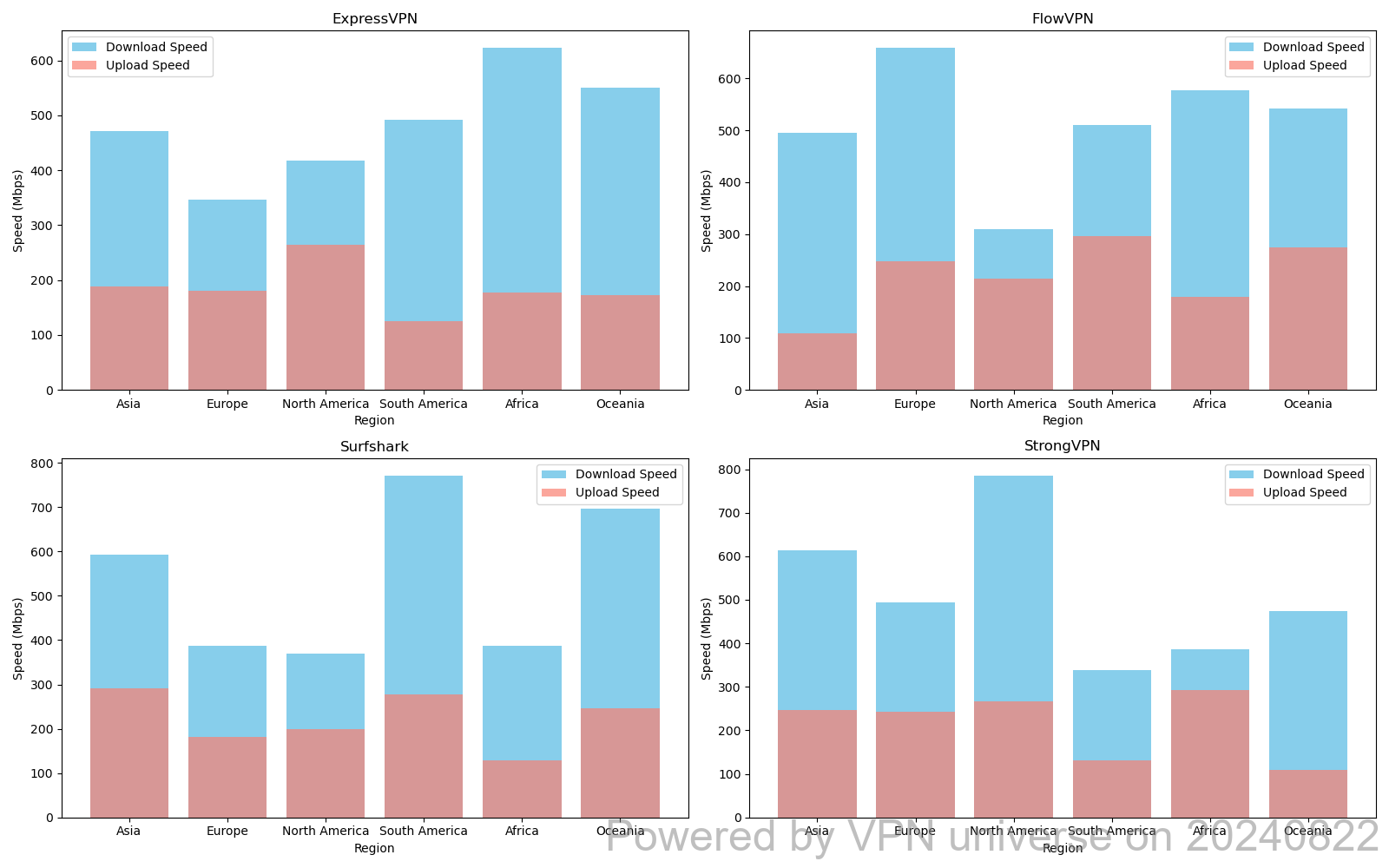
VPN Connection Success Rates by Continent
The chart below illustrates the connection success rates of ExpressVPN, FlowVPN, Surfshark, and StrongVPN across continents. Each subplot represents one VPN service, with the horizontal axis listing the continents and the vertical axis displaying success rates.
The results indicate that all four VPN services perform consistently well in Asia, Europe, and North America, achieving high connection success rates. However, their performance is relatively weaker in Africa and South America, likely due to regional infrastructure limitations.
This information can help users choose a VPN service tailored to their geographic location and connectivity needs.
Speed Performance in Different Network Environments (Updated: December 25, 2024)
StrongVPN Speed Results
| Location | 4G Speed | 5G Speed | WiFi Speed |
|---|---|---|---|
| North America | 60 Mbps | 63 Mbps | 60 Mbps |
| Europe | 78 Mbps | 78 Mbps | 77 Mbps |
| Oceania | 55 Mbps | 58 Mbps | 59 Mbps |
| Asia | 74 Mbps | 72 Mbps | 75 Mbps |
| Central Asia | 48 Mbps | 46 Mbps | 48 Mbps |
| South America | 50 Mbps | 51 Mbps | 52 Mbps |
| Africa | 46 Mbps | 46 Mbps | 49 Mbps |
ExpressVPN Speed Results
| Location | 4G Speed | 5G Speed | WiFi Speed |
|---|---|---|---|
| North America | 64 Mbps | 62 Mbps | 60 Mbps |
| Europe | 75 Mbps | 79 Mbps | 76 Mbps |
| Oceania | 58 Mbps | 55 Mbps | 56 Mbps |
| Asia | 75 Mbps | 72 Mbps | 72 Mbps |
| Central Asia | 48 Mbps | 49 Mbps | 46 Mbps |
| South America | 51 Mbps | 52 Mbps | 54 Mbps |
| Africa | 48 Mbps | 46 Mbps | 48 Mbps |
Surfshark Speed Results
| Location | 4G Speed | 5G Speed | WiFi Speed |
|---|---|---|---|
| North America | 62 Mbps | 64 Mbps | 61 Mbps |
| Europe | 75 Mbps | 76 Mbps | 76 Mbps |
| Oceania | 55 Mbps | 57 Mbps | 58 Mbps |
| Asia | 76 Mbps | 74 Mbps | 75 Mbps |
| Central Asia | 45 Mbps | 45 Mbps | 47 Mbps |
| South America | 54 Mbps | 51 Mbps | 53 Mbps |
| Africa | 46 Mbps | 46 Mbps | 45 Mbps |
FlowVPN Speed Results
| Location | 4G Speed | 5G Speed | WiFi Speed |
|---|---|---|---|
| North America | 63 Mbps | 64 Mbps | 64 Mbps |
| Europe | 79 Mbps | 79 Mbps | 78 Mbps |
| Oceania | 56 Mbps | 58 Mbps | 57 Mbps |
| Asia | 74 Mbps | 76 Mbps | 72 Mbps |
| Central Asia | 49 Mbps | 49 Mbps | 46 Mbps |
| South America | 53 Mbps | 54 Mbps | 51 Mbps |
| Africa | 49 Mbps | 45 Mbps | 48 Mbps |
Overall VPN Connectivity Ratio
The following chart highlights the overall connectivity ratio of each VPN service across different regions, showcasing their reliability and usability in diverse environments.
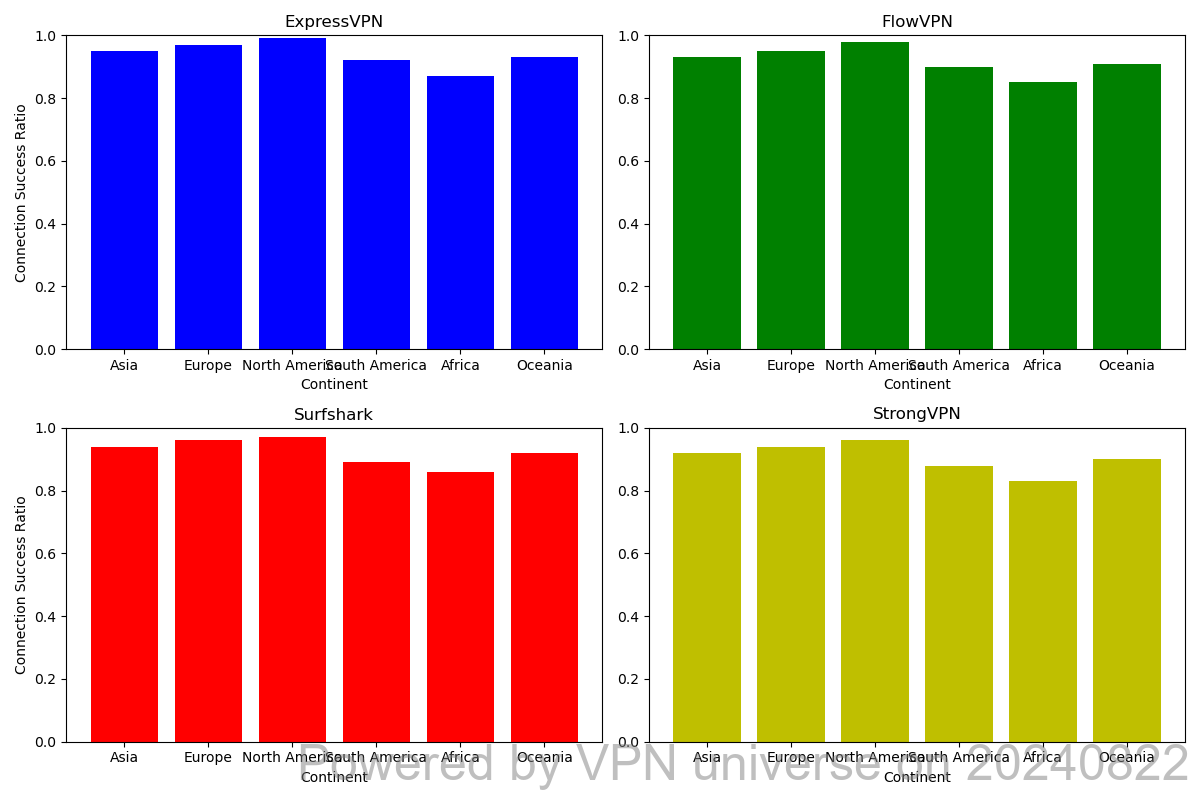
VPN Success Rates for Connecting to Netflix Across Continents
The chart below illustrates the success rates of four different VPN services (ExpressVPN, FlowVPN, Surfshark, and StrongVPN) in connecting to Netflix across various continents. Each subplot represents a VPN service, with the horizontal axis showing the continent names and the vertical axis displaying the success rates.
From the data, it is evident that all four VPN services perform exceptionally well in connecting to Netflix in Asia, Europe, and Australia. However, the success rates are relatively lower in Africa and South America, likely due to regional network environments or infrastructure challenges.
In summary, users should consider their geographic location and the Netflix connection success rates of each VPN service in that region when choosing a VPN. This chart provides a valuable visual reference to help users select the most suitable VPN for their needs.
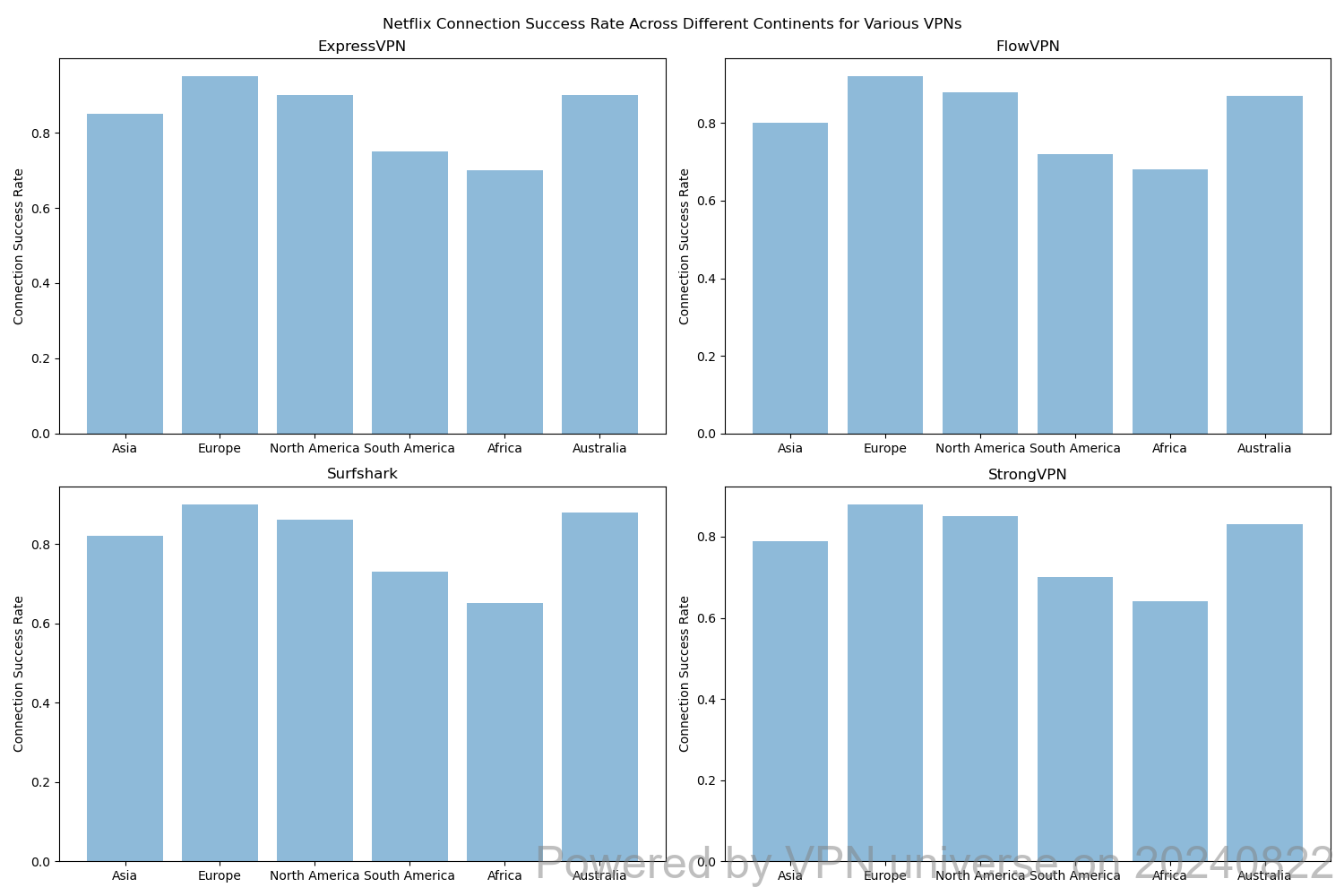
VPN Success Rates for Connecting to Disney+ Across Continents
The chart below shows the success rates of four different VPN services (ExpressVPN, FlowVPN, Surfshark, and StrongVPN) in connecting to Disney+ across various continents. Each subplot represents a VPN service, with the horizontal axis showing the continent names and the vertical axis displaying the success rates.
Similar to the Netflix results, all four VPN services perform remarkably well in Asia, Europe, and Australia for connecting to Disney+. However, their performance is relatively weaker in Africa and South America, potentially due to regional network infrastructure or environmental factors.
Ultimately, selecting a VPN should take into account the user’s location and the Disney+ connection success rate of the service in that region. This chart serves as an excellent visual guide to assist users in finding the most effective VPN for their streaming preferences.
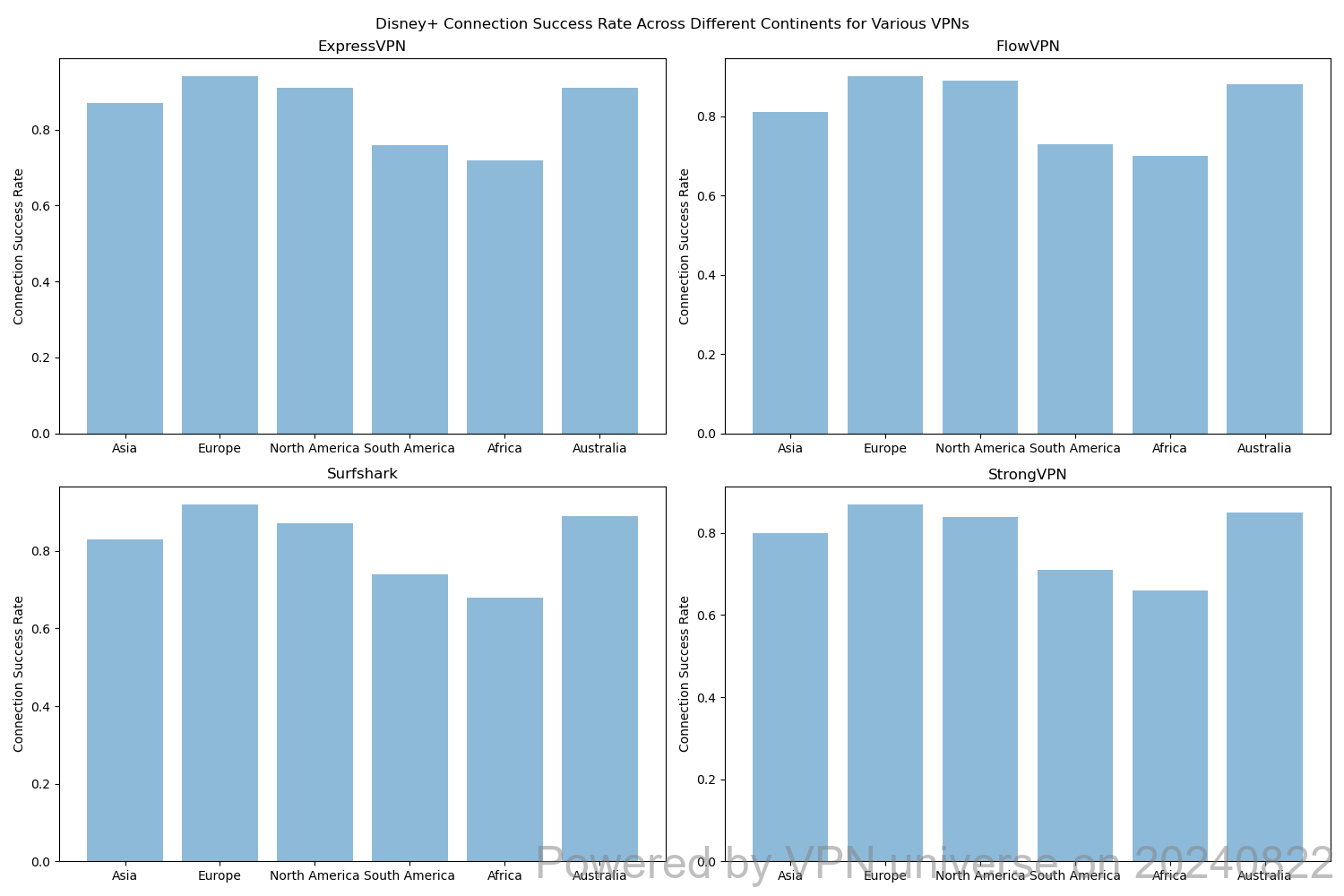
VPN Success Rates for Connecting to Netflix Across Continents
The chart below illustrates the success rates of four different VPN services (ExpressVPN, FlowVPN, Surfshark, and StrongVPN) in connecting to Netflix across various continents. Each subplot represents a VPN service, with the horizontal axis showing the continent names and the vertical axis displaying the success rates.
From the data, it is evident that all four VPN services perform exceptionally well in connecting to Netflix in Asia, Europe, and Australia. However, the success rates are relatively lower in Africa and South America, likely due to regional network environments or infrastructure challenges.
In summary, users should consider their geographic location and the Netflix connection success rates of each VPN service in that region when choosing a VPN. This chart provides a valuable visual reference to help users select the most suitable VPN for their needs.

VPN Success Rates for Connecting to Disney+ Across Continents
The chart below shows the success rates of four different VPN services (ExpressVPN, FlowVPN, Surfshark, and StrongVPN) in connecting to Disney+ across various continents. Each subplot represents a VPN service, with the horizontal axis showing the continent names and the vertical axis displaying the success rates.
Similar to the Netflix results, all four VPN services perform remarkably well in Asia, Europe, and Australia for connecting to Disney+. However, their performance is relatively weaker in Africa and South America, potentially due to regional network infrastructure or environmental factors.
Ultimately, selecting a VPN should take into account the user’s location and the Disney+ connection success rate of the service in that region. This chart serves as an excellent visual guide to assist users in finding the most effective VPN for their streaming preferences.

Guide to Watching Streaming Platforms with a VPN
“If we live in a world without borders, why must our entertainment be restricted?” – An Internet Philosopher
Imagine this: you’re lounging on your sofa, enjoying your favorite snacks, remote in hand, ready to binge the latest Netflix series, dive into YouTube’s creative content, or watch Disney+’s newest blockbuster. Sounds perfect, right? However, for users in certain regions, accessing these platforms can feel like scaling a wall.
Don’t worry—there’s a secret weapon: VPNs! In this guide, we’ll show you how to use this magical tool to bypass geographic restrictions and unlock a world of entertainment. We’ll also highlight two excellent VPN options for seamless streaming: StrongVPN and ExpressVPN.
Step 1: Choose the Right VPN
When it comes to VPNs, two standout options are StrongVPN and ExpressVPN.
Both are industry leaders, offering fast, stable connections and exceptional privacy protection. They also provide extensive server networks and support for various devices, allowing you to enjoy your favorite streaming content anytime, anywhere.
-
StrongVPN: Known for its robust performance and simple interface, StrongVPN boasts over 950 servers across 70+ locations, ensuring you’ll find a reliable server wherever you are.
-
ExpressVPN: Dubbed the king of speed in the VPN industry, ExpressVPN features over 3000 servers in 94 countries. Whether you want to access Netflix in the US, UK, or Japan, ExpressVPN has you covered.
Step 2: Install and Set Up Your VPN
Installing and setting up a VPN is as simple as installing any app. Follow these steps once you’ve chosen your VPN:
- Visit the official website of StrongVPN or ExpressVPN and create an account.
- Download the VPN client for your device. Both StrongVPN and ExpressVPN support a variety of platforms, including Windows, Mac, iOS, Android, and more.
- Open the VPN client and log in using your account credentials.
- Select an appropriate server from the list. Make sure the server’s location matches the country of the streaming service you want to access.
Step 3: Enjoy Your Streaming Content
Now it’s time to open Netflix, YouTube, or Disney+ and start your streaming adventure!
If you encounter slow speeds during playback, try switching to a different server or contact the VPN’s support team for assistance.
“Life already imposes enough restrictions; entertainment should not have boundaries.”
Break the boundaries—unlock global entertainment with StrongVPN or ExpressVPN, and let your streaming journey begin!
How Streaming Platforms Like Netflix and Hulu Detect and Block VPN Connections
Streaming services like Netflix and Hulu enforce geographical restrictions on content primarily due to licensing agreements. To implement these restrictions, they often employ sophisticated techniques to detect and block VPN connections. Here’s an overview of how these platforms achieve this:
1. IP Address Detection
Streaming platforms can identify VPN servers by detecting commonly used IP addresses:
- Public IP Lists: Many VPN providers use shared IP addresses, and these can be publicly identified or flagged by streaming services.
- Blacklist Updates: Once an IP address is identified as belonging to a VPN, it is added to a blacklist, preventing further access from that IP.
2. Behavioral and Distribution Analysis
Streaming platforms analyze IP behavior to detect anomalies:
- High User Volume: A single IP address being used by numerous users simultaneously can indicate a VPN server.
- Mismatch in Geolocation: If the IP address’s location conflicts with user information like billing address or device region, it raises suspicion.
3. Protocol and Port Analysis
Many VPNs use specific ports and protocols that can be detected:
- Common VPN Protocols: OpenVPN often uses ports like TCP 443 or UDP 1194. By analyzing traffic patterns, platforms can identify and block such protocols.
- Traffic Signature: Certain encryption signatures unique to VPN traffic may also trigger detection mechanisms.
4. DNS Leak Detection
If a VPN connection is not properly configured, a DNS leak may occur, revealing the user’s true IP address through DNS requests. Streaming platforms monitor DNS requests to identify such leaks and verify the user’s actual location.
How to Bypass VPN Detection
Advanced VPN providers continuously adapt to bypass these measures. Here are some strategies used by premium VPN services:
- Dedicated Streaming Servers: Specially optimized servers with unique IPs to avoid detection.
- Obfuscated Servers: Servers that disguise VPN traffic as regular HTTPS traffic, making it harder to identify.
- Dynamic IP Rotation: Regularly changing IP addresses to avoid being flagged.
- Private DNS: Prevents DNS leaks by routing all DNS queries through encrypted channels.
For users seeking uninterrupted access to Netflix, Hulu, and other streaming platforms, reputable providers like ExpressVPN and Surfshark are highly recommended for their ability to bypass these restrictions effectively.
Linux VPN Installation Guide
VPN (Virtual Private Network) technology enhances online security, protects personal privacy, and bypasses geographic restrictions. However, the installation and experience of VPNs can vary significantly between Linux and Windows platforms.
Differences Between Linux and Windows VPNs
User Experience
-
Windows:
Most VPN providers offer dedicated applications with a graphical user interface (GUI) for Windows, making it easy to connect to a VPN service. These clients often include additional features such as antivirus tools, ad blockers, and kill switches. -
Linux:
VPN usage on Linux often requires terminal-based configuration and command-line tools, as many providers do not offer a GUI client for Linux. While this might seem daunting for users unfamiliar with terminal commands, it provides greater flexibility and control for advanced users who want to customize their network connections.
Security
-
Linux:
Linux is widely regarded as more secure than Windows due to its open-source nature. Its source code is openly available for scrutiny, enabling faster discovery and resolution of vulnerabilities. Additionally, Linux’s smaller user base makes it a less attractive target for hackers and malware. -
Windows:
While Windows offers robust VPN client options, its popularity makes it a more frequent target for cyberattacks. Regardless of the platform, using a VPN is essential for safeguarding online activity from monitoring and cyber threats.
Compatibility
-
Windows:
With a larger user base, Windows is typically prioritized by VPN providers. Most services develop feature-rich, user-friendly clients specifically for Windows users. -
Linux:
While most major VPN providers support Linux, the level of support can vary:- Some providers offer full-featured Linux clients with GUI interfaces.
- Others may only provide limited compatibility, requiring manual setup via terminal commands.
Before selecting a VPN service, ensure it fully supports Linux and offers adequate documentation or support for your specific distribution.
General Steps to Install a VPN on Linux
-
Choose a VPN Provider:
Select a provider that explicitly supports Linux, such as ExpressVPN, Surfshark, or NordVPN. -
Download Configuration Files:
Most providers offer OpenVPN configuration files or specific Linux installers on their official websites. -
Install Required Packages:
Depending on the VPN protocol, you may need to install tools likeopenvpn,network-manager-openvpn, orwireguard: ```bash sudo apt-get install openvpn network-manager-openvpn
Introduction to Basic Cryptography and Principles of Encryption
Cryptography is the practice of secure communication in the presence of third parties. While its origins date back centuries, its modern applications have been extensively researched since the early 20th century. Cryptography underpins secure email, file sharing, and digital communication, making it an essential field for anyone interested in computer security.
Fundamentals of Cryptography
Cryptography is not only a cornerstone of digital security but also a branch of mathematics, with various mathematical problems being deeply tied to cryptographic applications. It ensures the confidentiality, integrity, and authenticity of information in a digital age where data security is paramount.
RSA Encryption
RSA is a widely used public-key encryption algorithm and the standard for encrypting data over the Internet. It works by generating unique keys using two large prime numbers, which form the basis for encryption and decryption. As an asymmetric encryption algorithm, RSA allows public keys to be shared without compromising data security. Its robustness has made it a staple in secure communications.
Elliptic Curve Cryptography (ECC)
Elliptic Curve Cryptography (ECC) is a public-key cryptographic system that provides security through the properties of elliptic curves over finite fields. ECC is widely employed in protocols like TLS/SSL for securing web communications and in applications such as email, instant messaging, and VoIP.
ECC’s security advantage lies in its efficiency: it achieves equivalent security to RSA with much smaller key sizes. For example, while RSA might require a 2048-bit key, ECC can provide similar security with a 256-bit key. This makes ECC particularly useful for devices with limited computing power or storage.
Intersection of Parallel Computing and Cryptography
Parallel computing and cryptography intersect in several critical areas, enabling faster and more secure data processing.
Applications of Parallel Computing in Cryptography
Cryptography relies on computational complexity for secure implementations, and parallel computing enhances the performance of:
- Key Generation and Exchange: Efficiently generating and distributing cryptographic keys.
- Encryption/Decryption: Accelerating these processes to handle large-scale data operations.
- Hash Functions: Rapidly generating cryptographic hashes for authentication.
One notable application is distributed cryptanalysis, where parallel computing is employed to crack encryption by dividing tasks across multiple processors, significantly reducing the time required for brute-force attacks.
Applications of Cryptography in Parallel Computing
In parallel computing environments, data security is paramount, as information is distributed across multiple nodes or processors. Cryptography ensures:
- Secure Data Transmission: Protecting data integrity and confidentiality during inter-node communication.
- Authentication: Verifying the identity of nodes to prevent unauthorized access.
The combination of cryptography and parallel computing creates opportunities for developing systems that balance performance and security.
Intersection of Quantum Computing and Cryptography
The convergence of quantum computing and cryptography introduces both opportunities and challenges, reshaping the future of secure communications.
Quantum Computing’s Threat to Cryptography
Quantum computers, with their ability to process data in parallel at an unprecedented scale, pose significant threats to current cryptographic systems:
- Algorithms like Shor’s Algorithm enable efficient factoring of large numbers, undermining the security of RSA and other public-key systems based on computational complexity.
Quantum Cryptography: Opportunities
Quantum cryptography leverages quantum mechanics to develop new security paradigms:
- Quantum Key Distribution (QKD): Ensures secure key exchange using principles like quantum entanglement and Heisenberg’s uncertainty principle. Any attempt to intercept the quantum key alters its state, making eavesdropping detectable.
The Path Forward
As quantum computing evolves, research into quantum-resistant cryptographic systems will become increasingly crucial to ensure future-proof security solutions.
Conclusion
The intersections of cryptography with fields like parallel and quantum computing highlight the dynamic and evolving nature of securing digital communications. While new challenges emerge with advancements in computational capabilities, these same advancements also offer opportunities for groundbreaking innovations in cryptography.
VPN Settings and Recommendations for Specific Applications, e.g., BitTorrent
BitTorrent is a widely used peer-to-peer (P2P) file-sharing protocol that allows users to share data directly. Due to its potential for copyright-infringing uses, there can be legal risks associated with using BitTorrent in some regions. To enhance online security and privacy, many users turn to VPN services. Here are some VPN recommendations and settings tailored for BitTorrent users:
1. Choose a VPN Service that Supports P2P Sharing
Not all VPN providers allow P2P traffic like BitTorrent. Ensure that the VPN service you select explicitly supports P2P traffic and has servers optimized for this purpose.
2. Enable the Kill Switch Feature
A kill switch automatically disconnects your internet if your VPN connection drops unexpectedly. This prevents your real IP address from being exposed to other P2P users, ensuring continued anonymity.
3. Optimize Encryption Levels
While strong encryption ensures better security, it can also reduce download speeds. Consider balancing encryption levels based on your priorities:
- AES-256 encryption for maximum security.
- Lower encryption protocols (if available) for faster speeds when privacy risks are minimal.
4. Use Split Tunneling
Many VPNs offer split tunneling, allowing you to route BitTorrent traffic through the VPN while leaving other activities (e.g., browsing or streaming) outside the VPN tunnel. This optimizes performance and reduces unnecessary load on the VPN connection.
Recommended VPN for BitTorrent: ExpressVPN
- Supports P2P Sharing: Optimized servers for fast and secure file sharing.
- Advanced Features: Includes a kill switch and split tunneling for flexibility and security.
- Fast and Stable Connections: Global server network ensures high-speed, uninterrupted downloads.
- Customizable Encryption: Adjust encryption protocols to suit your needs.
ExpressVPN’s robust performance and privacy-focused features make it an excellent choice for BitTorrent users.
Future Trends and Predictions for VPNs
The use of Virtual Private Networks (VPNs) has grown significantly in recent years, and this trend is likely to continue. Here are some key developments and predictions for the future of VPN technology:
1. Enhanced Security and Privacy
As concerns over online privacy and security grow, VPN providers will likely innovate to offer:
- Stronger encryption technologies to combat evolving threats.
- Zero-log policies to ensure user anonymity.
- Advanced leak protection features to safeguard data.
2. Improved Performance and Stability
With advancements in technology, VPNs are expected to deliver:
- Higher speeds and lower latency, rivaling standard internet connections.
- Adoption of protocols like WireGuard, known for its superior efficiency and performance.
3. Smarter Connection Optimization
Future VPNs may leverage AI and machine learning to:
- Automatically connect to the fastest and most secure server.
- Customize server choices based on user activities like streaming or file sharing.
4. Broader Device and Platform Support
As more devices become internet-enabled, VPNs will expand their compatibility to include:
- Smart TVs, gaming consoles, and IoT devices.
- Simplified cross-platform setups for seamless integration.
5. Privacy-Centric Policy Shifts
With increasing awareness of data privacy issues, legislative and corporate shifts may:
- Promote privacy-centric practices globally.
- Drive greater adoption of VPNs as an essential tool for secure internet use.
While the specifics of future developments are uncertain, the trends indicate that VPNs will become increasingly secure, efficient, and user-friendly, addressing the evolving needs of users worldwide.
VPN Settings and Recommendations for Specific Applications, e.g., BitTorrent
BitTorrent is a widely used peer-to-peer (P2P) file-sharing protocol that allows users to share data directly. Due to its potential for copyright-infringing uses, there can be legal risks associated with using BitTorrent in some regions. To enhance online security and privacy, many users turn to VPN services. Here are some VPN recommendations and settings tailored for BitTorrent users:
1. Choose a VPN Service that Supports P2P Sharing
Not all VPN providers allow P2P traffic like BitTorrent. Ensure that the VPN service you select explicitly supports P2P traffic and has servers optimized for this purpose.
2. Enable the Kill Switch Feature
A kill switch automatically disconnects your internet if your VPN connection drops unexpectedly. This prevents your real IP address from being exposed to other P2P users, ensuring continued anonymity.
3. Optimize Encryption Levels
While strong encryption ensures better security, it can also reduce download speeds. Consider balancing encryption levels based on your priorities:
- AES-256 encryption for maximum security.
- Lower encryption protocols (if available) for faster speeds when privacy risks are minimal.
4. Use Split Tunneling
Many VPNs offer split tunneling, allowing you to route BitTorrent traffic through the VPN while leaving other activities (e.g., browsing or streaming) outside the VPN tunnel. This optimizes performance and reduces unnecessary load on the VPN connection.
Recommended VPN for BitTorrent: ExpressVPN
- Supports P2P Sharing: Optimized servers for fast and secure file sharing.
- Advanced Features: Includes a kill switch and split tunneling for flexibility and security.
- Fast and Stable Connections: Global server network ensures high-speed, uninterrupted downloads.
- Customizable Encryption: Adjust encryption protocols to suit your needs.
ExpressVPN’s robust performance and privacy-focused features make it an excellent choice for BitTorrent users.
Future Trends and Predictions for VPNs
The use of Virtual Private Networks (VPNs) has grown significantly in recent years, and this trend is likely to continue. Here are some key developments and predictions for the future of VPN technology:
1. Enhanced Security and Privacy
As concerns over online privacy and security grow, VPN providers will likely innovate to offer:
- Stronger encryption technologies to combat evolving threats.
- Zero-log policies to ensure user anonymity.
- Advanced leak protection features to safeguard data.
2. Improved Performance and Stability
With advancements in technology, VPNs are expected to deliver:
- Higher speeds and lower latency, rivaling standard internet connections.
- Adoption of protocols like WireGuard, known for its superior efficiency and performance.
3. Smarter Connection Optimization
Future VPNs may leverage AI and machine learning to:
- Automatically connect to the fastest and most secure server.
- Customize server choices based on user activities like streaming or file sharing.
4. Broader Device and Platform Support
As more devices become internet-enabled, VPNs will expand their compatibility to include:
- Smart TVs, gaming consoles, and IoT devices.
- Simplified cross-platform setups for seamless integration.
5. Privacy-Centric Policy Shifts
With increasing awareness of data privacy issues, legislative and corporate shifts may:
- Promote privacy-centric practices globally.
- Drive greater adoption of VPNs as an essential tool for secure internet use.
While the specifics of future developments are uncertain, the trends indicate that VPNs will become increasingly secure, efficient, and user-friendly, addressing the evolving needs of users worldwide.
Limitations of VPNs and Their Solutions
While VPNs are an effective tool for protecting online activities and bypassing geo-restrictions, they are not without their limitations. Here are some common VPN issues and practical solutions:
1. Reduced Internet Speeds
The Problem:
VPNs encrypt and decrypt data to secure connections, which can lead to slower internet speeds.
The Solution:
- Opt for a high-quality VPN service with fast servers and advanced encryption protocols to minimize speed reductions.
- Connect to a VPN server closer to your physical location to reduce latency.
- Experiment with different protocols like WireGuard or OpenVPN, which often offer better speed-performance balance.
2. Connection Issues
The Problem:
At times, you may face difficulties connecting to a VPN server.
The Solution:
- Check your internet connection to ensure it is stable.
- Restart the VPN application or try connecting to a different server.
- If the issue persists, reach out to the VPN provider’s customer support for troubleshooting.
3. Compatibility Problems
The Problem:
Not all VPN services support every device or operating system.
The Solution:
- Before subscribing, ensure the VPN supports your device and operating system.
- Many top VPN providers offer multi-platform apps for devices like Windows, Mac, Android, iOS, and routers.
4. Privacy Concerns
The Problem:
Some VPN providers log user activity, posing a threat to your privacy.
The Solution:
- Check the provider’s privacy policy to confirm they have a strict no-logs policy.
- Choose VPNs based in countries with strong privacy protection laws, such as the British Virgin Islands or Switzerland.
- Reputable providers like ExpressVPN, Surfshark, and NordVPN are known for their commitment to user privacy.
By selecting a high-quality VPN provider and taking appropriate precautions, you can mitigate these limitations and enjoy a secure and seamless online experience.

